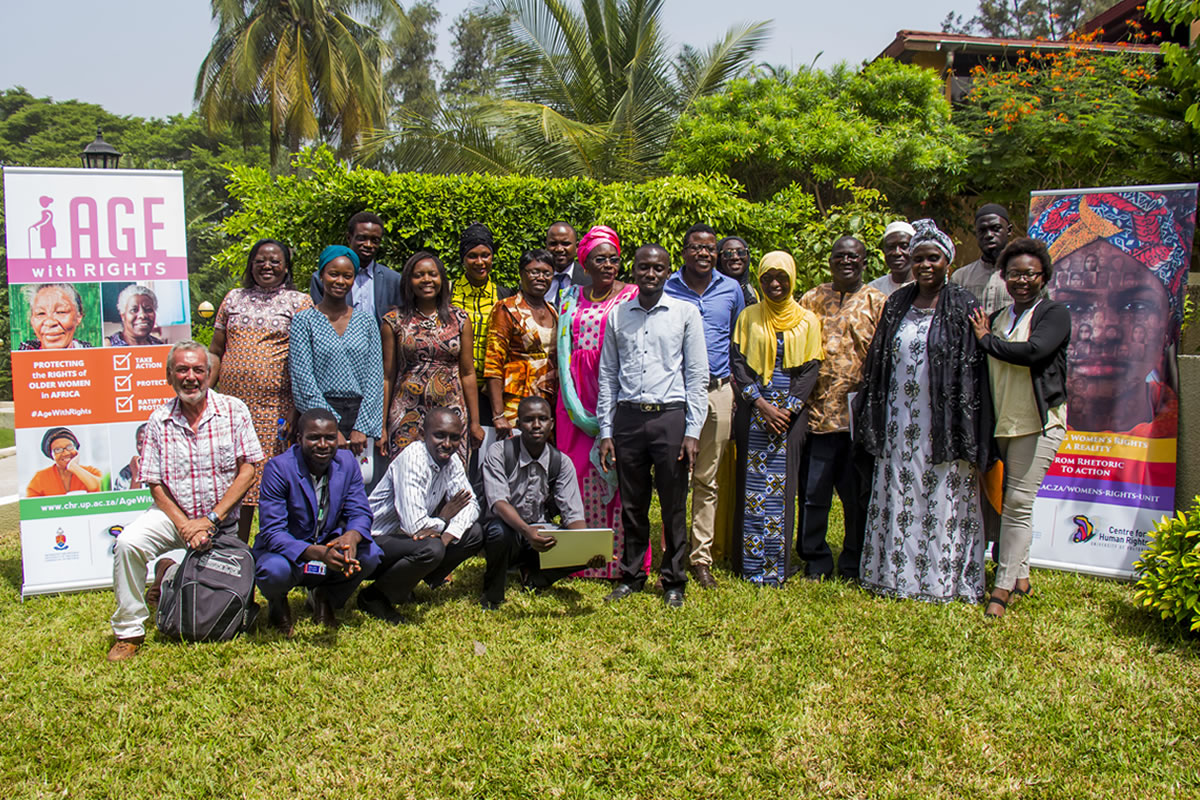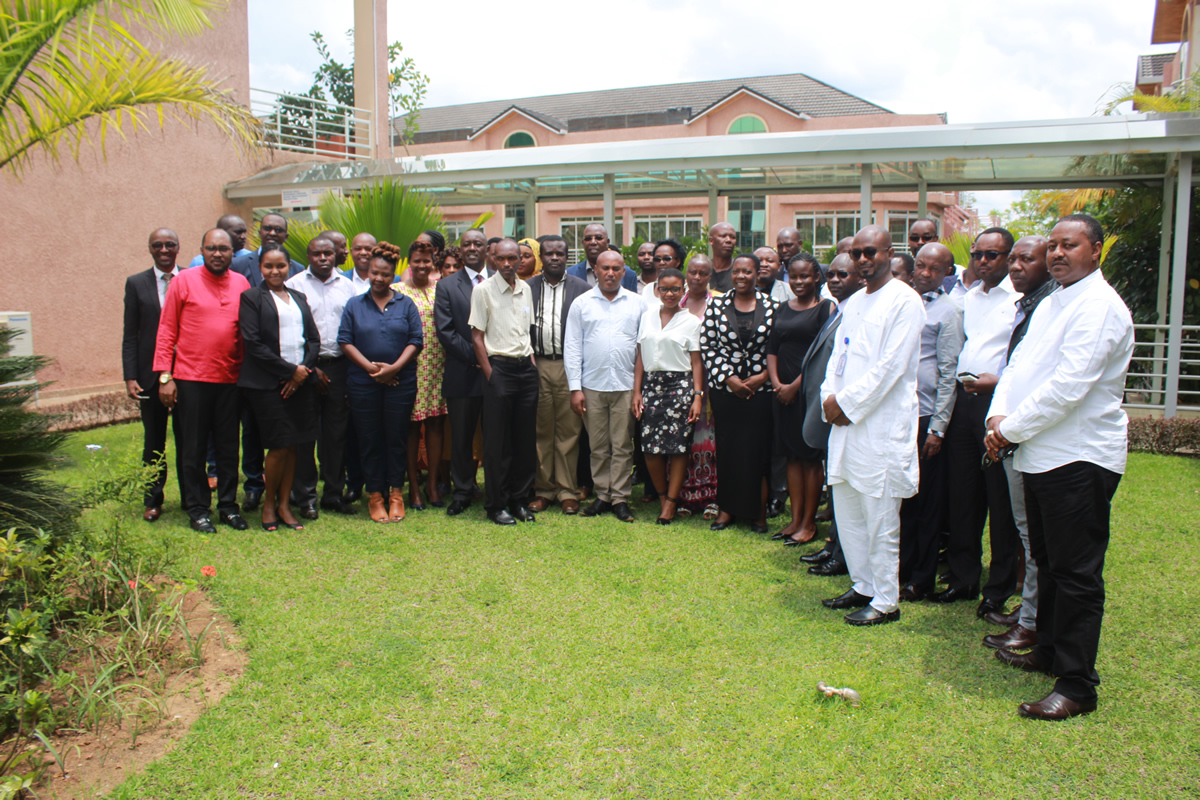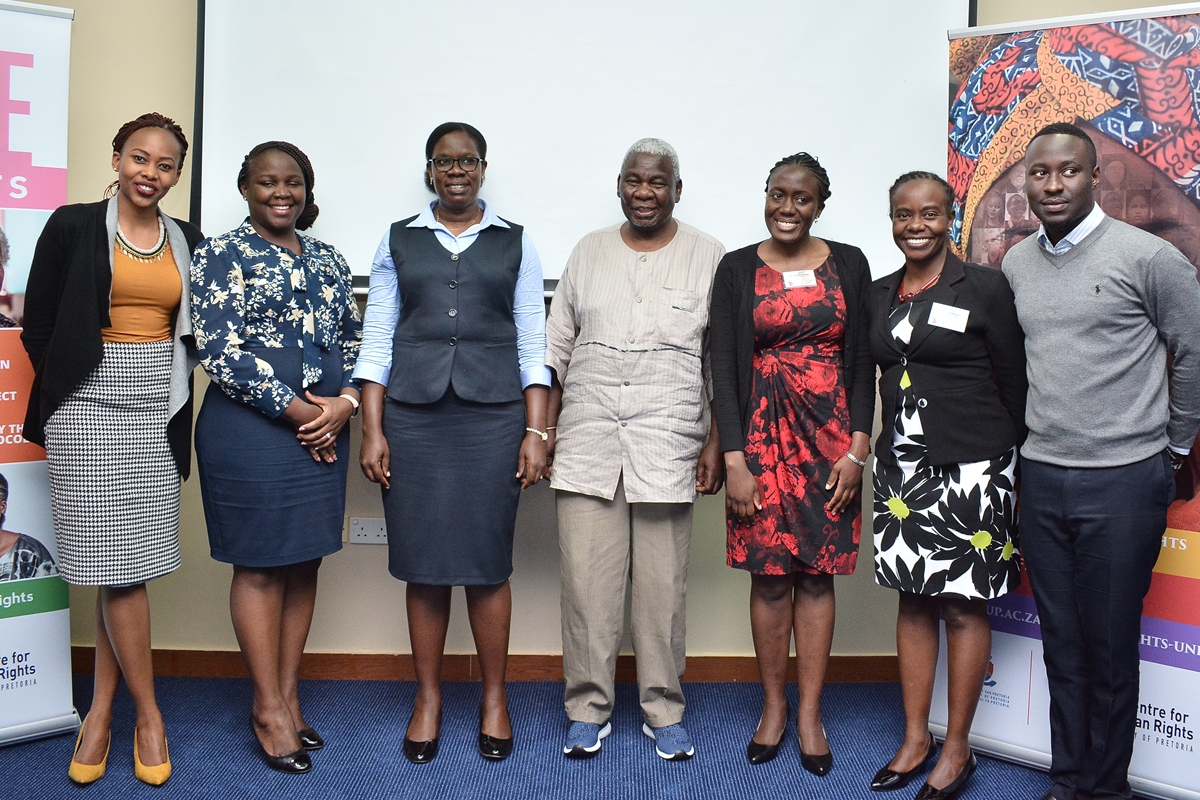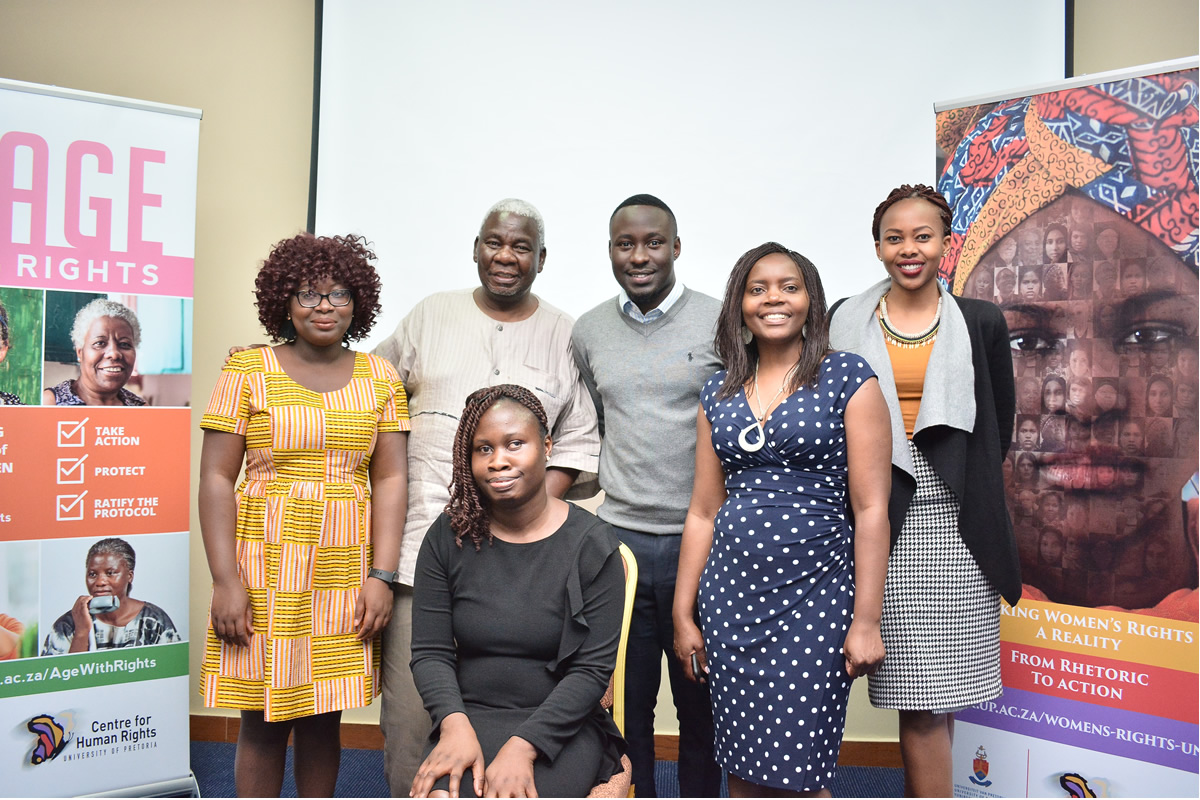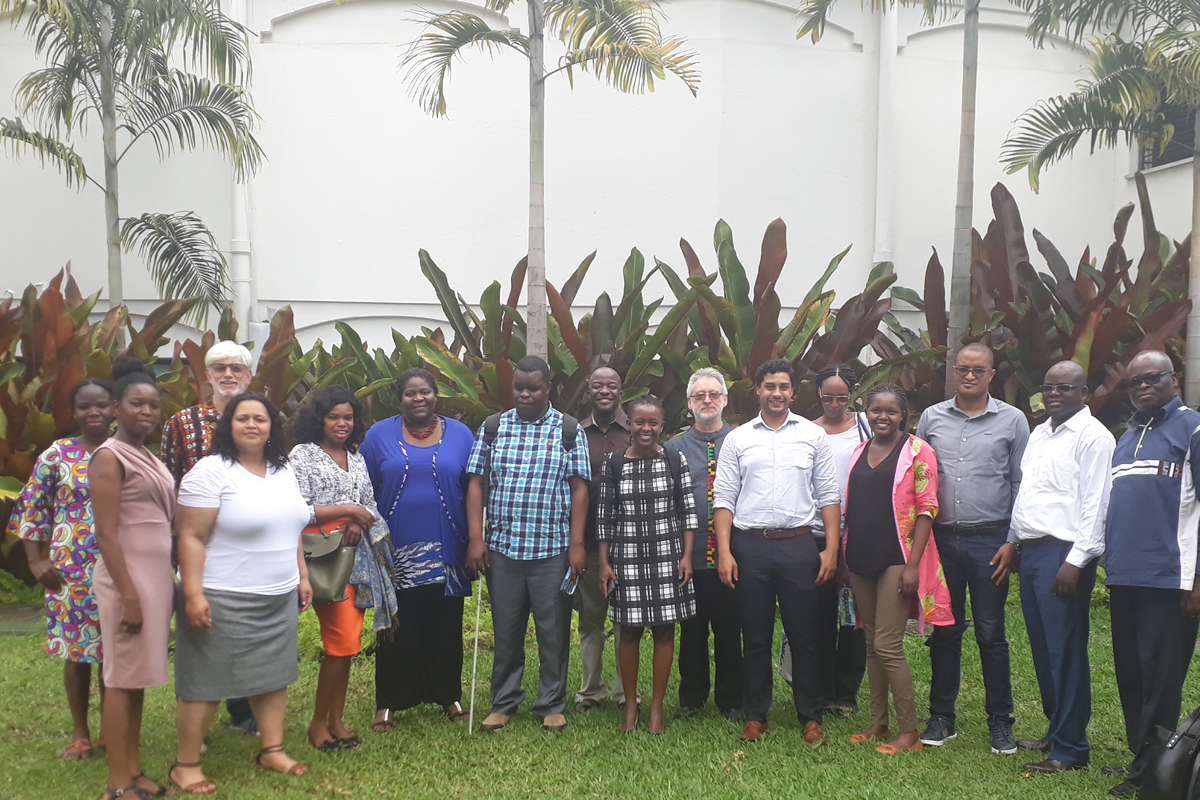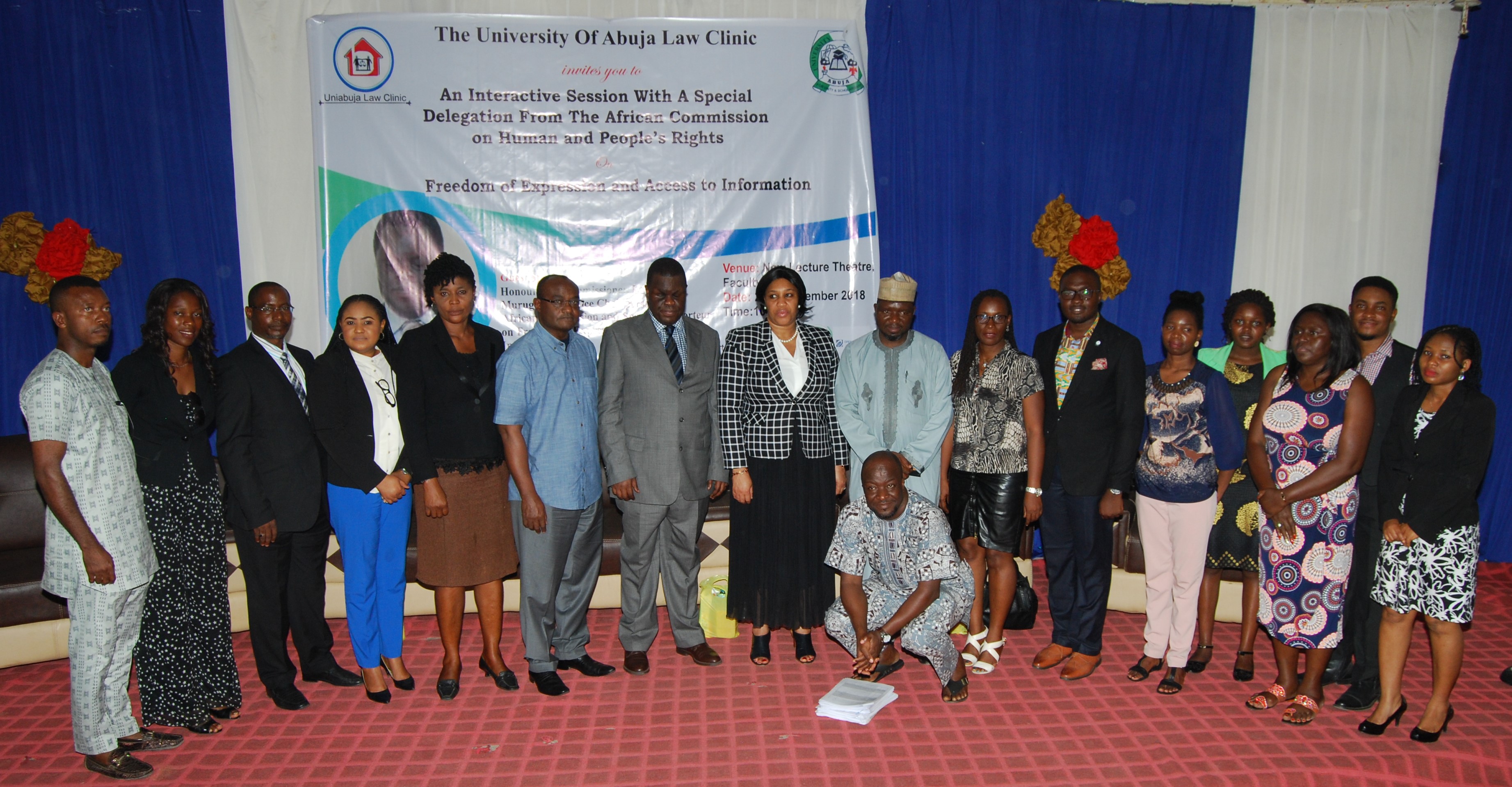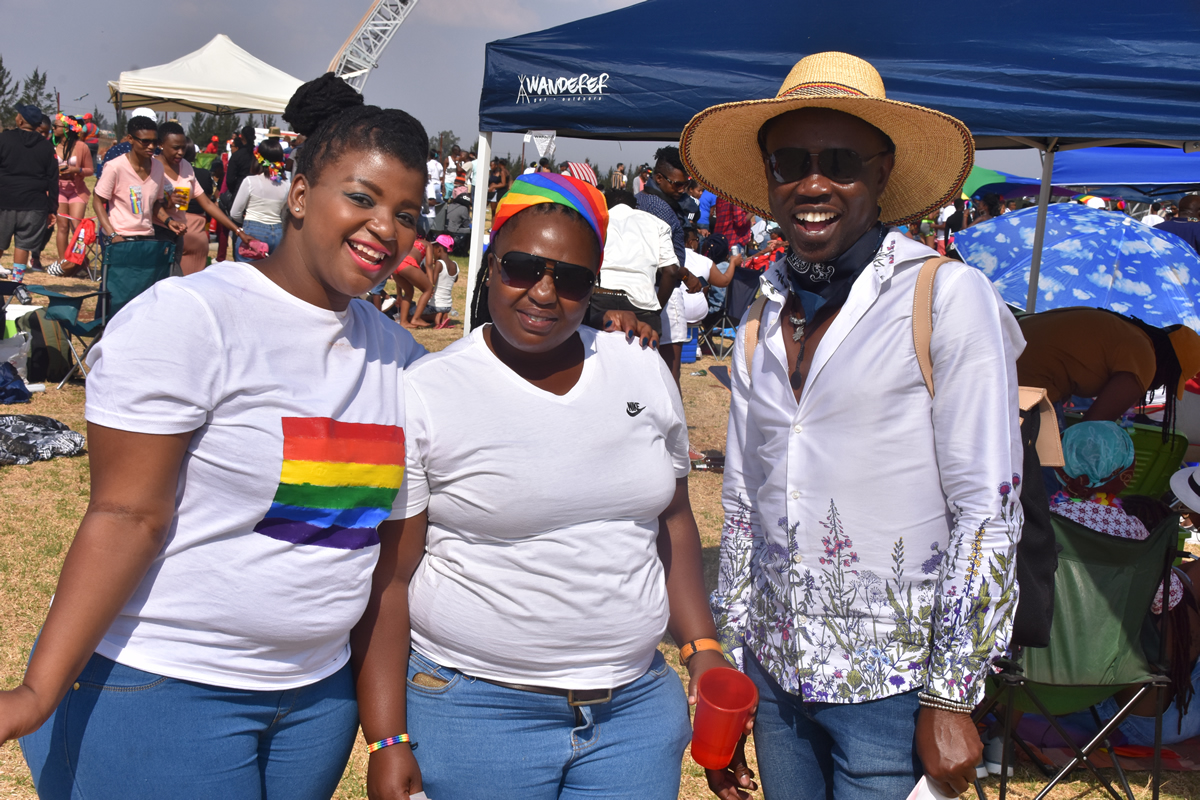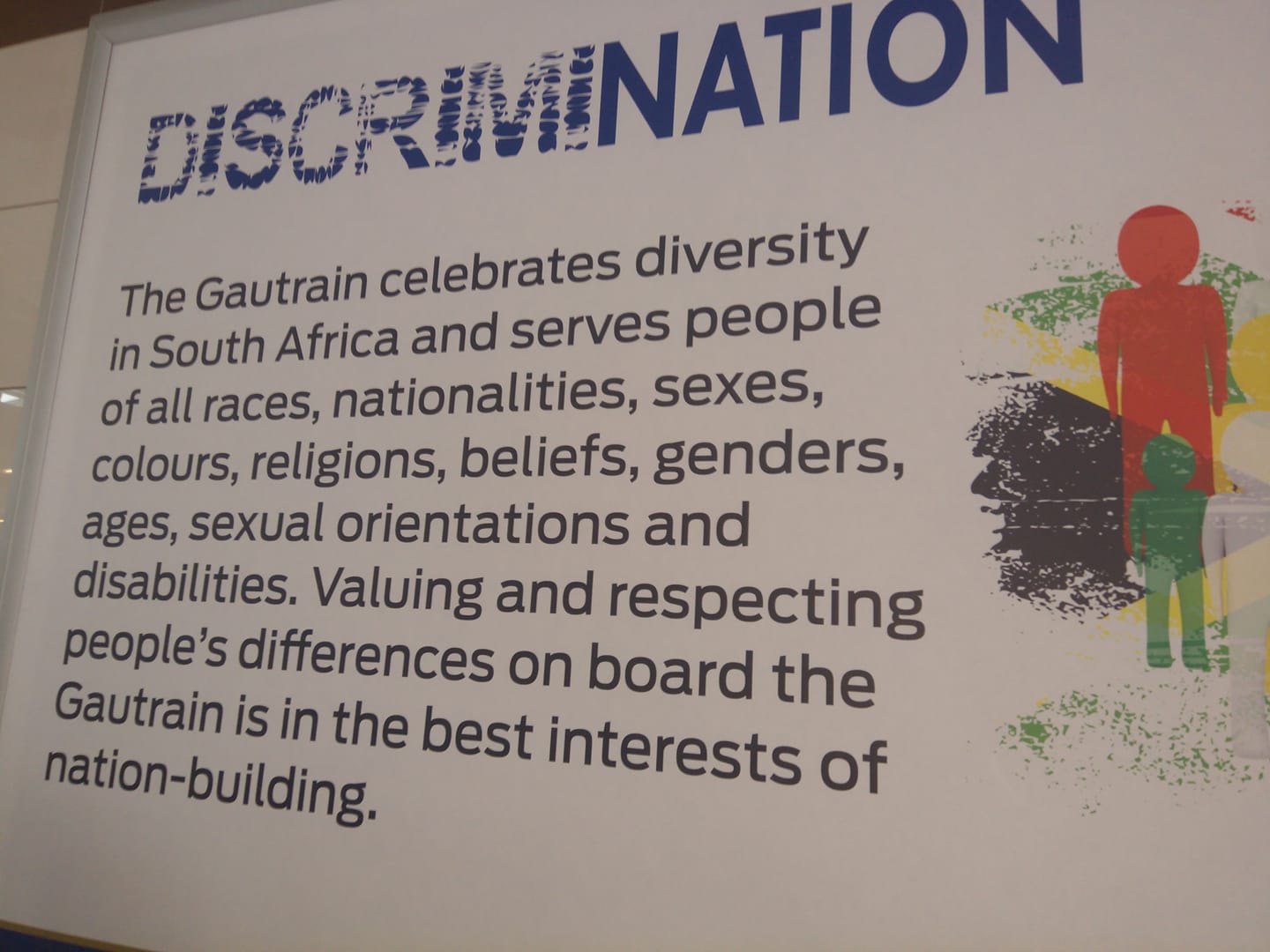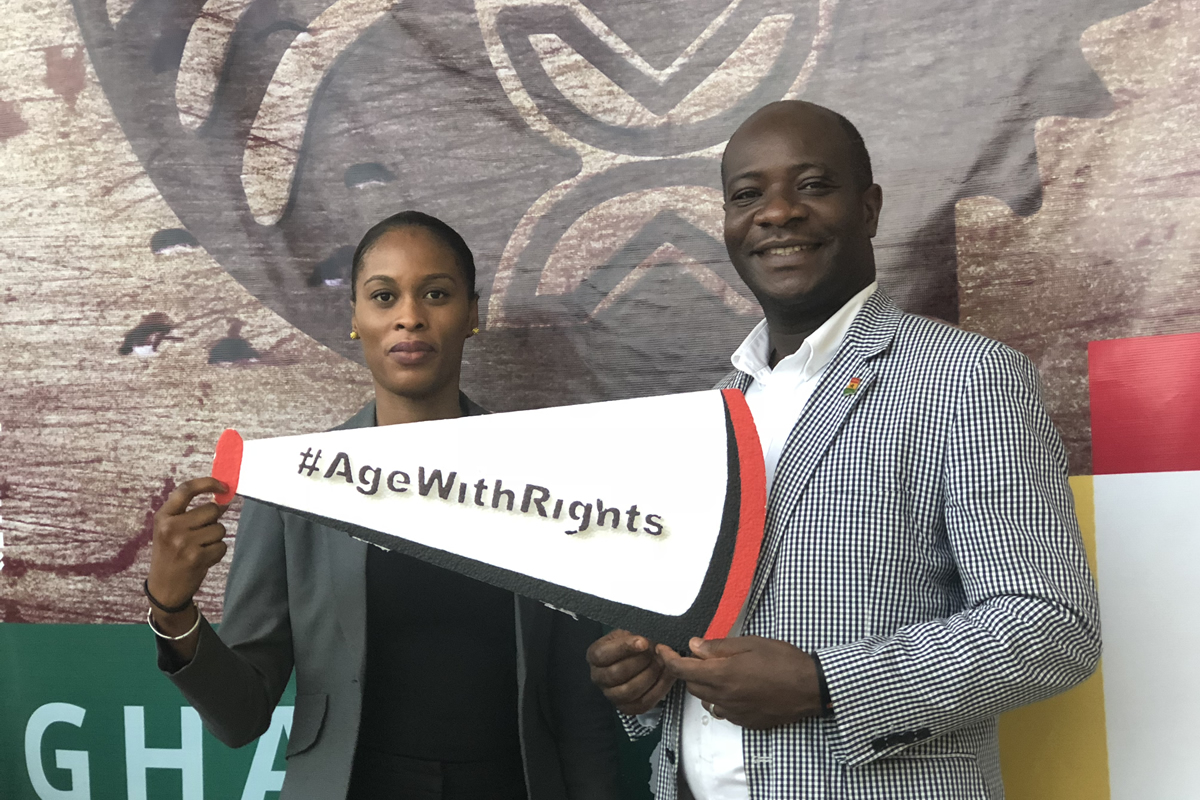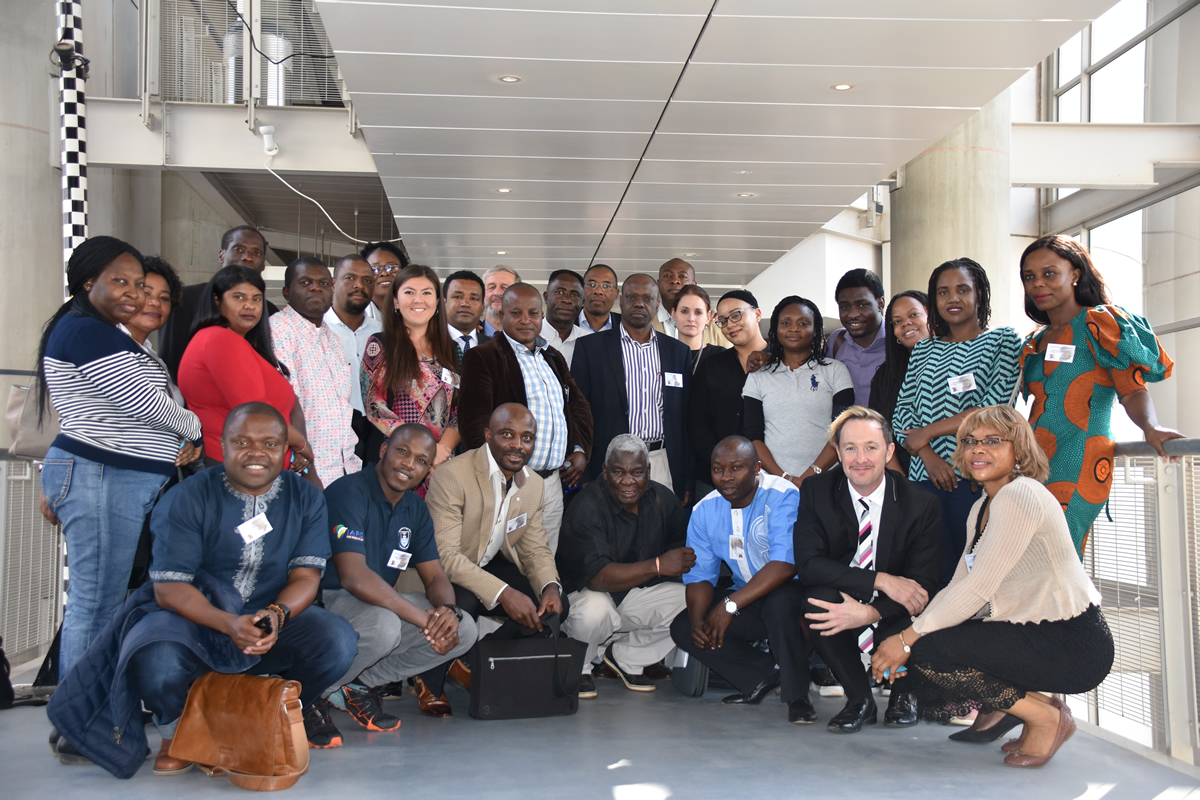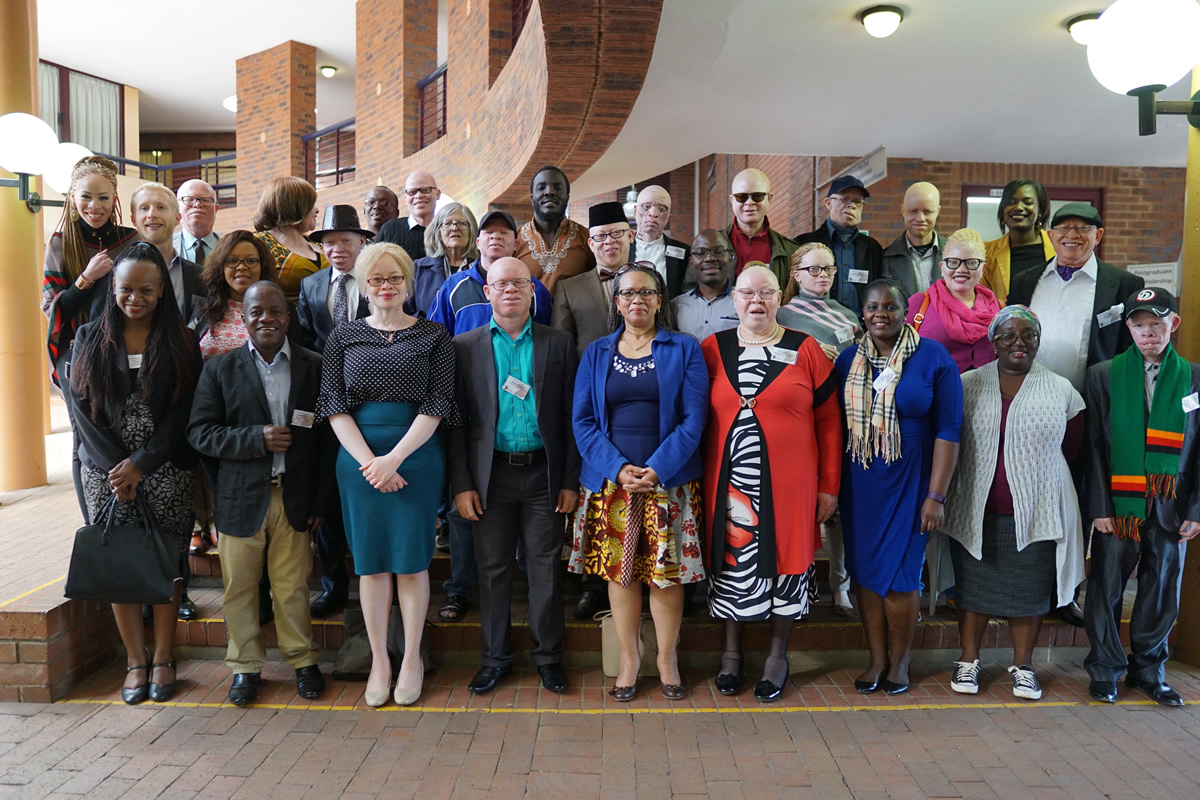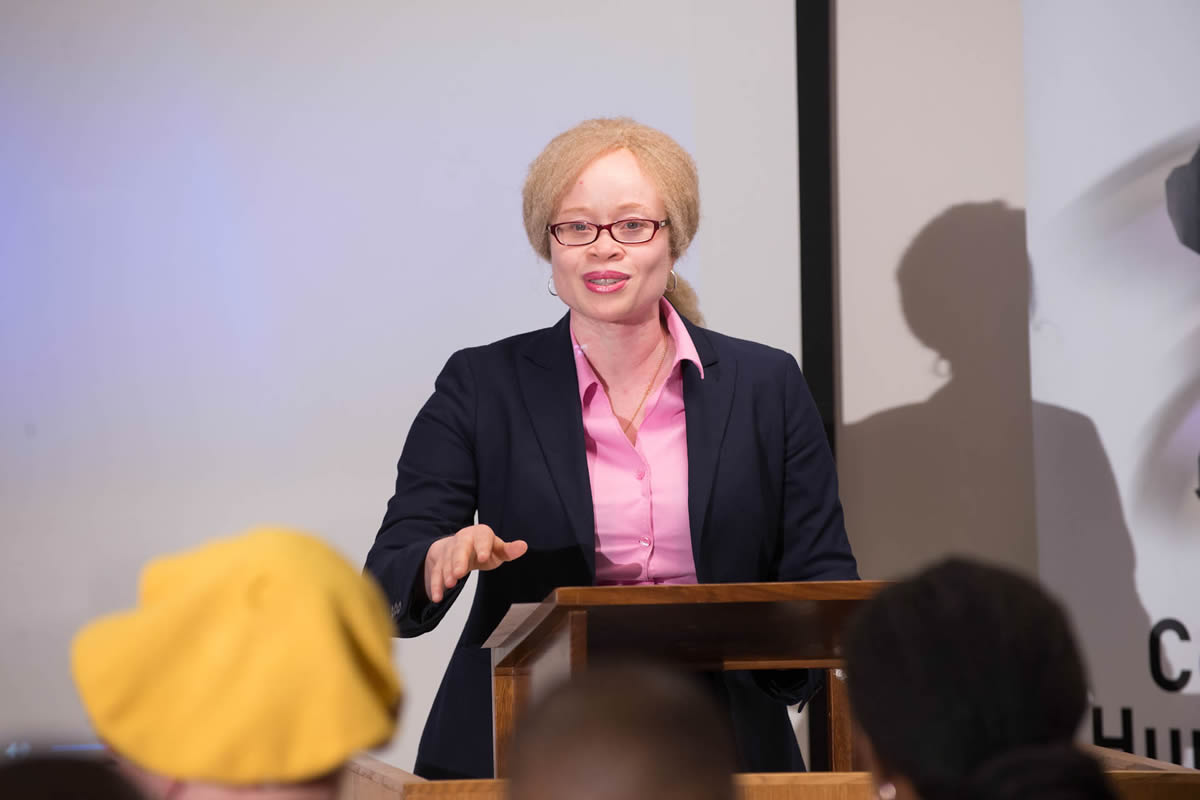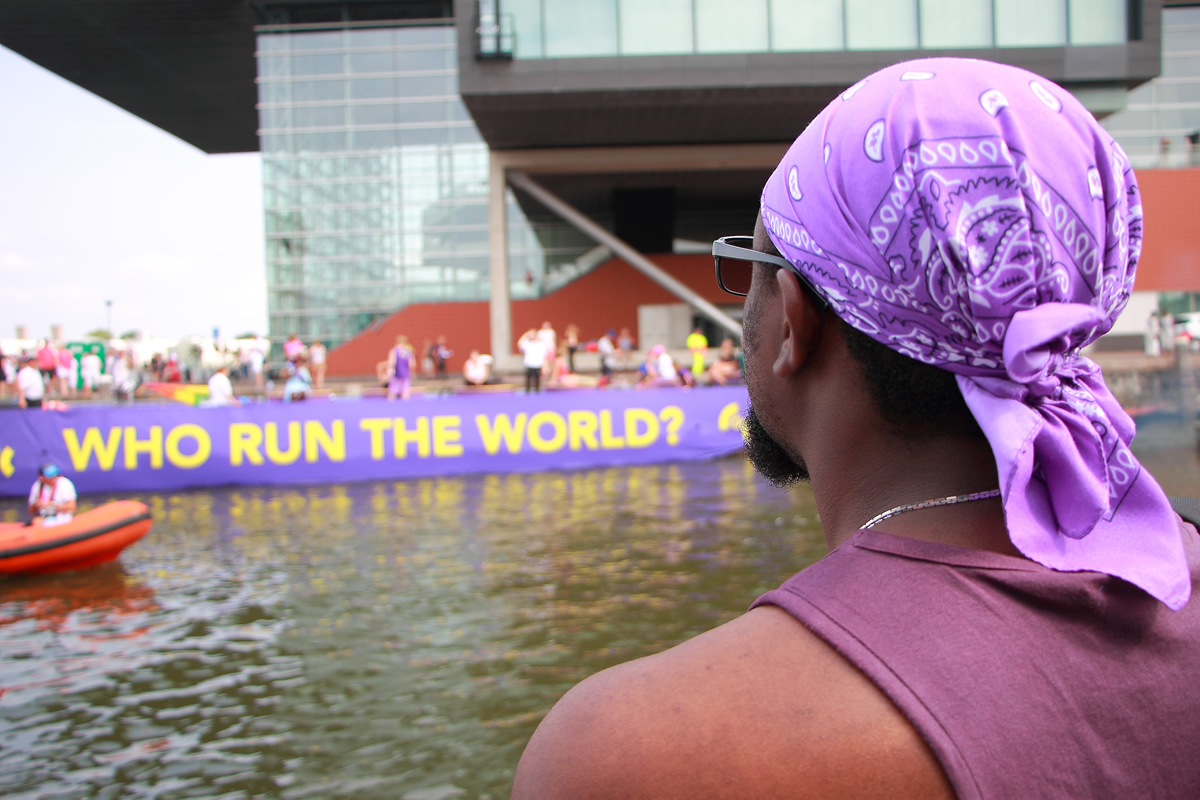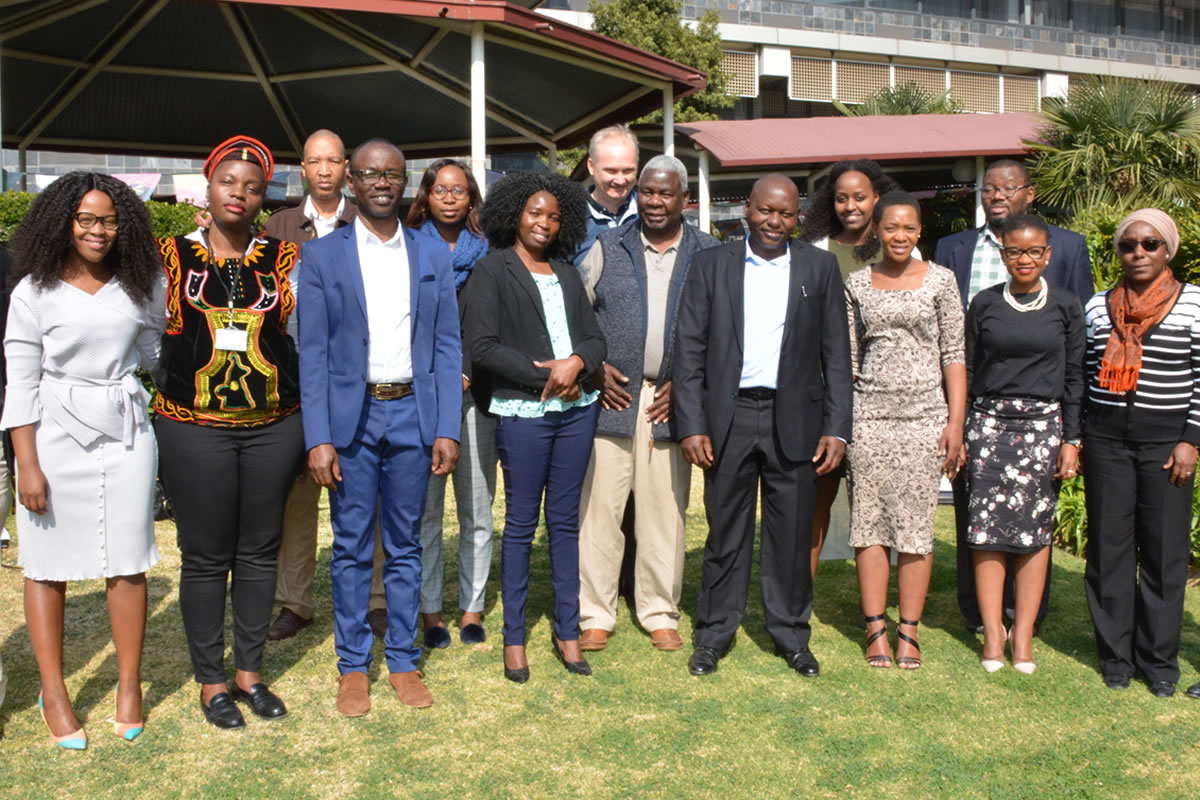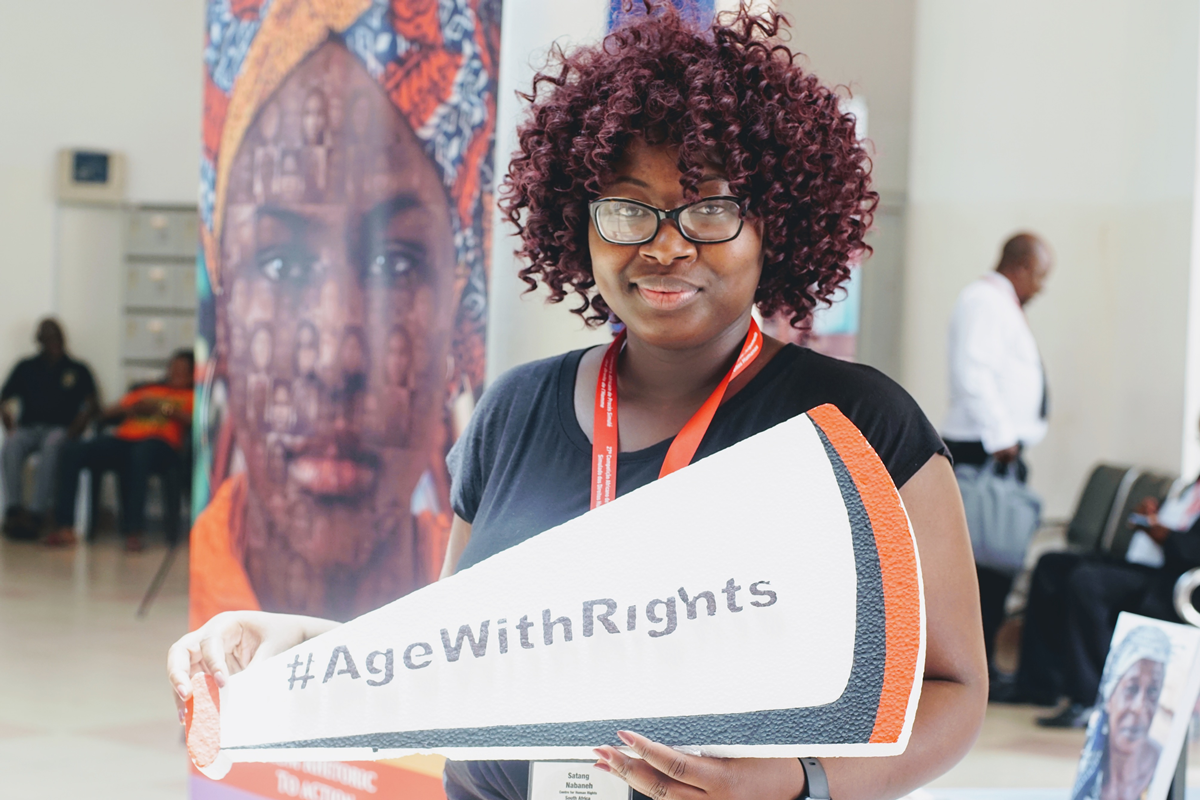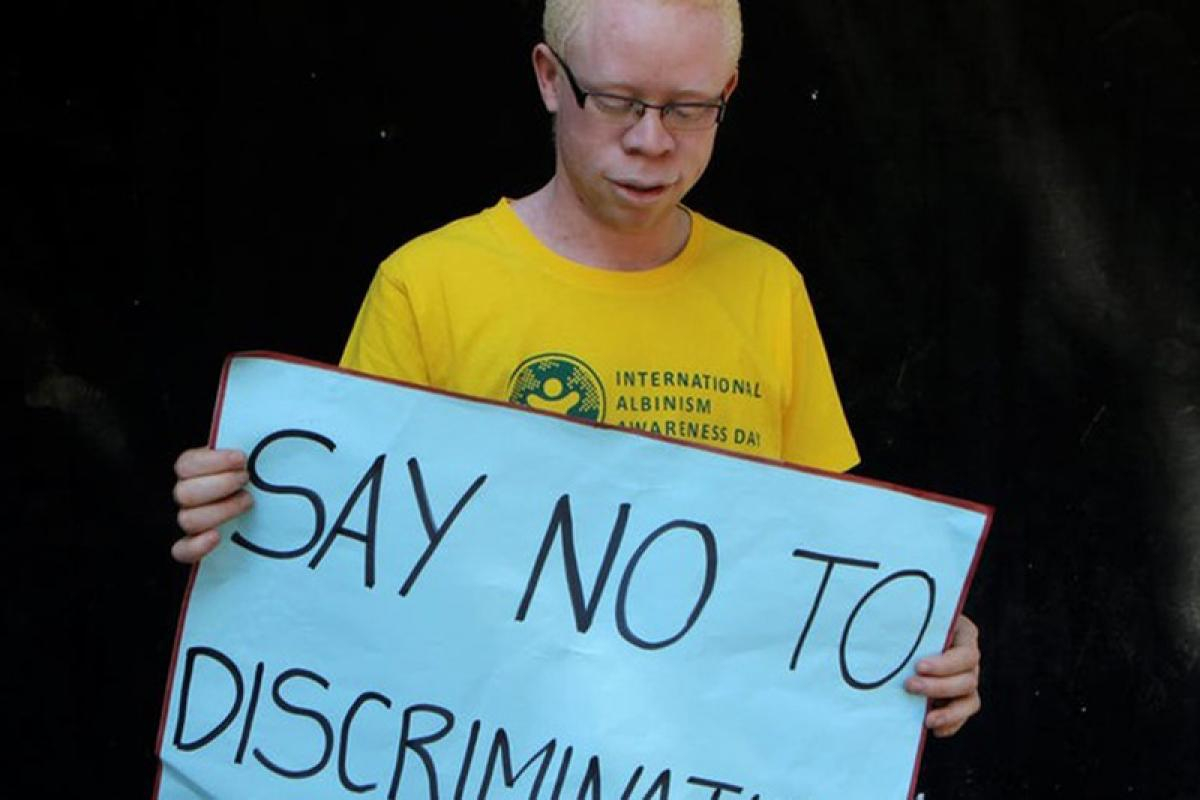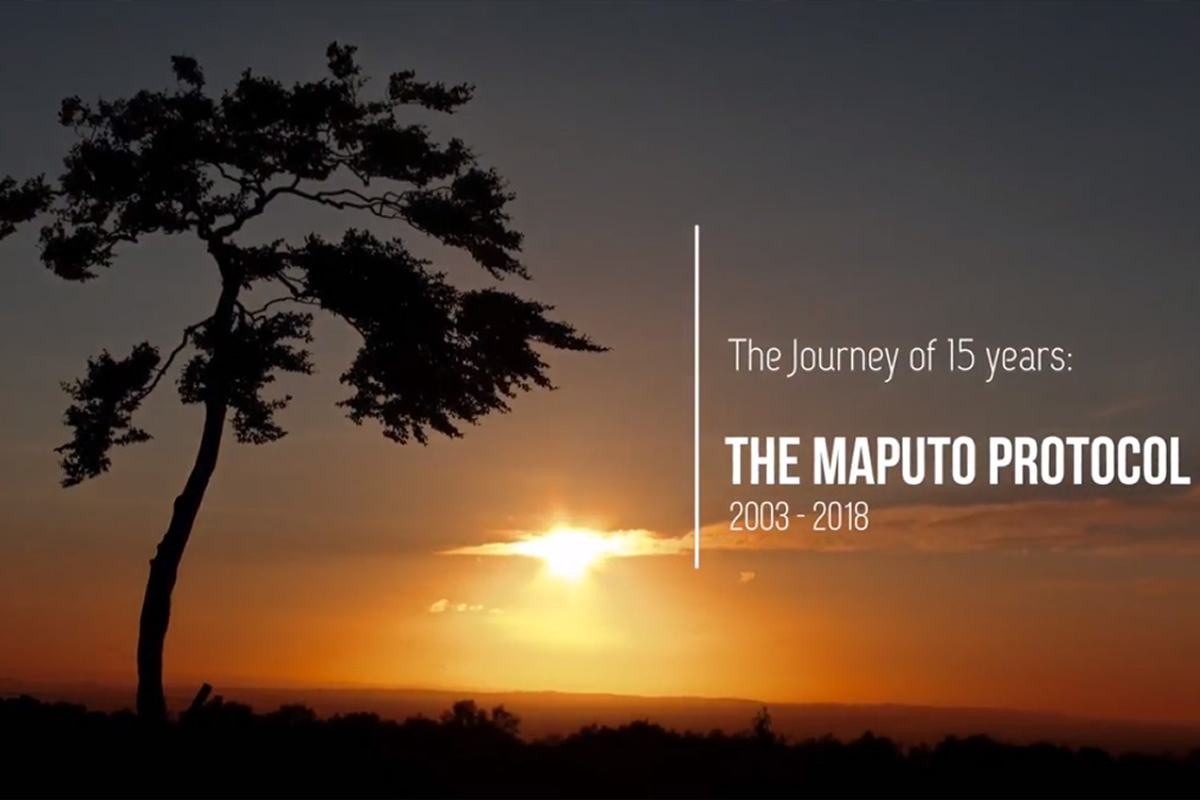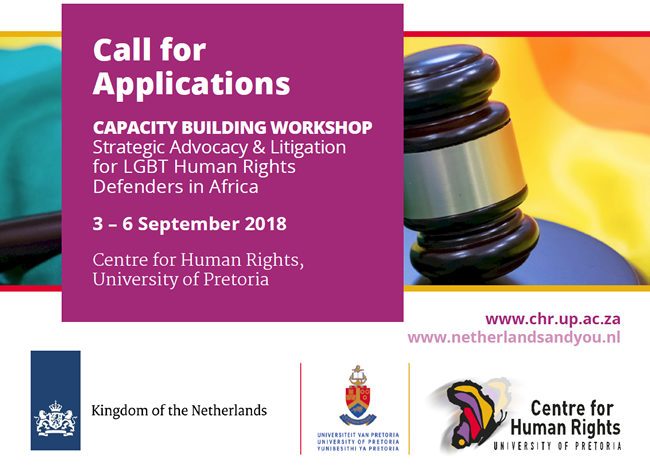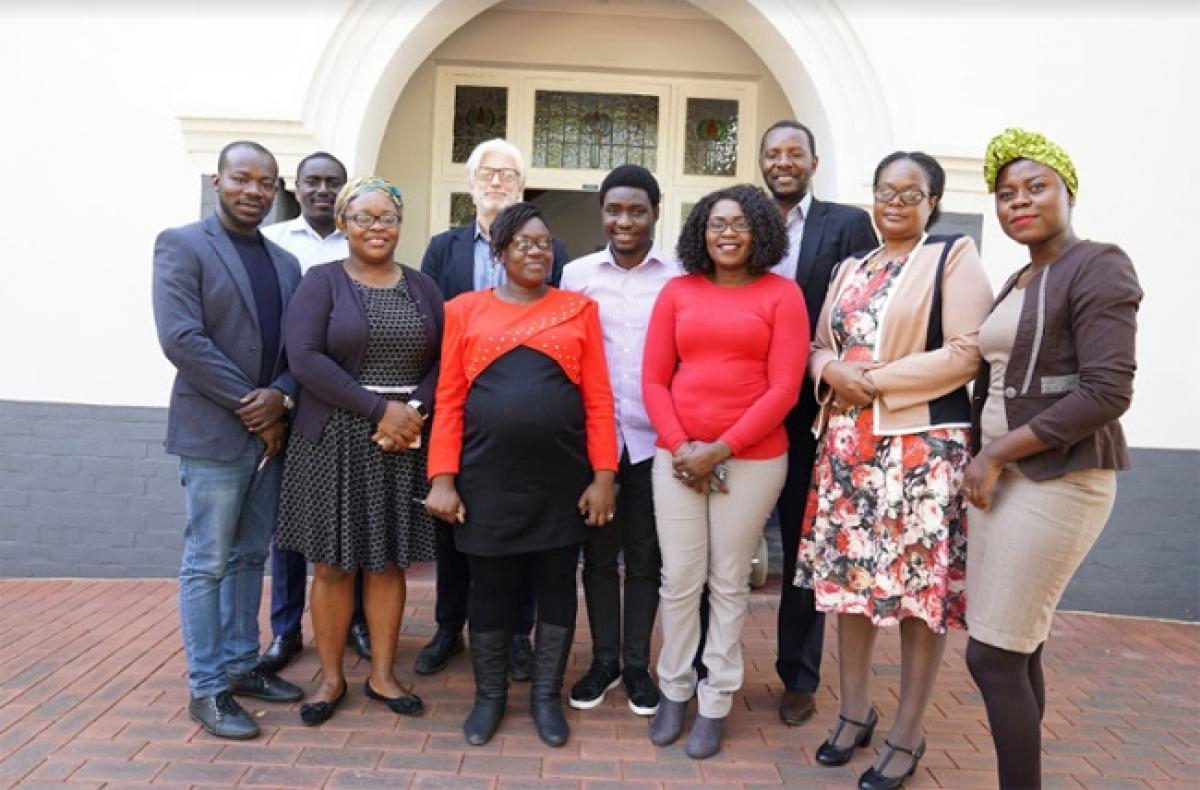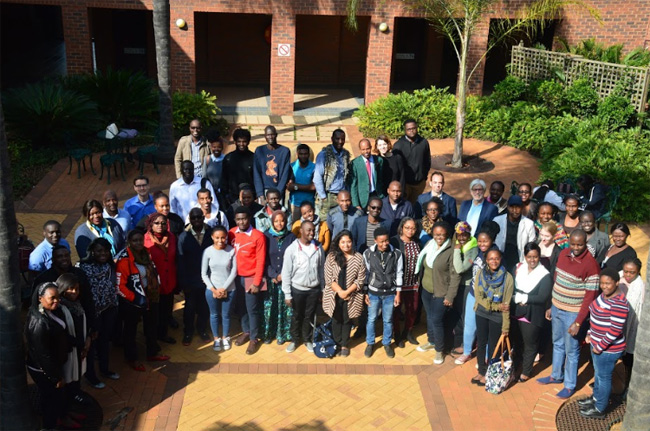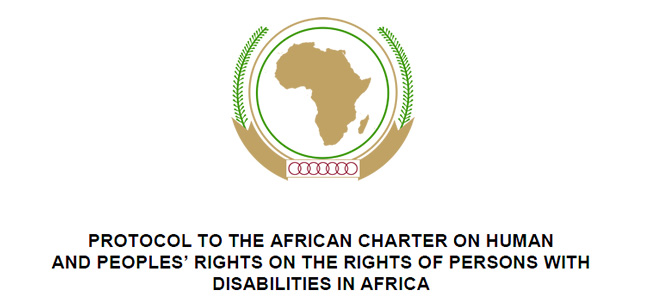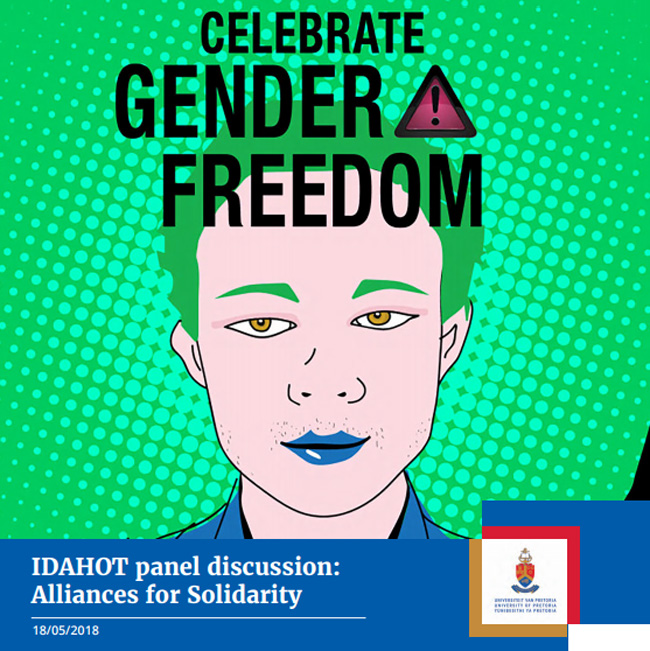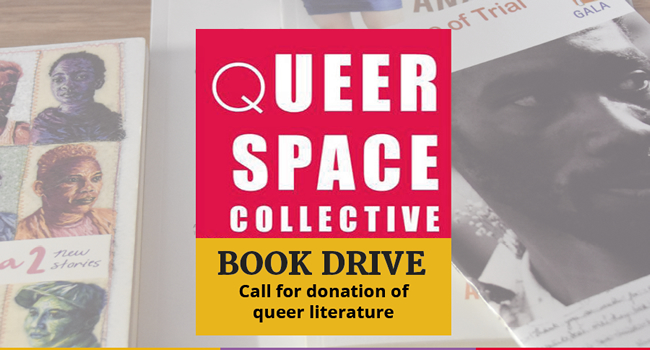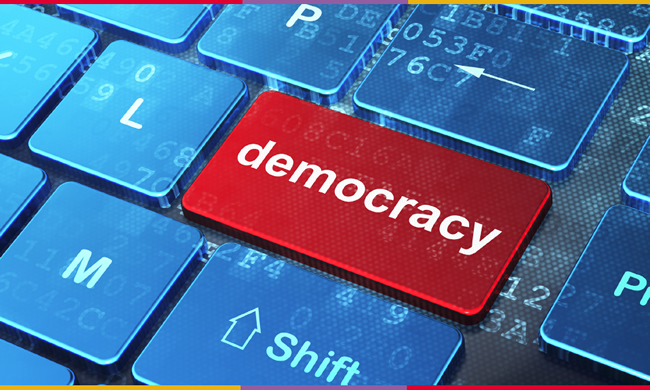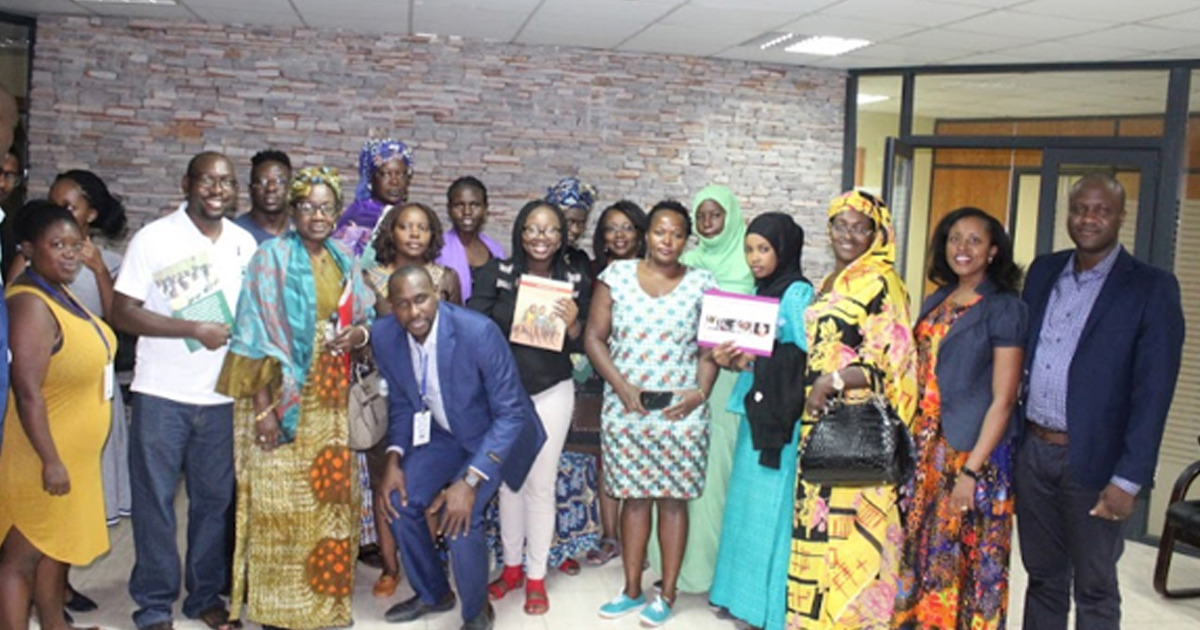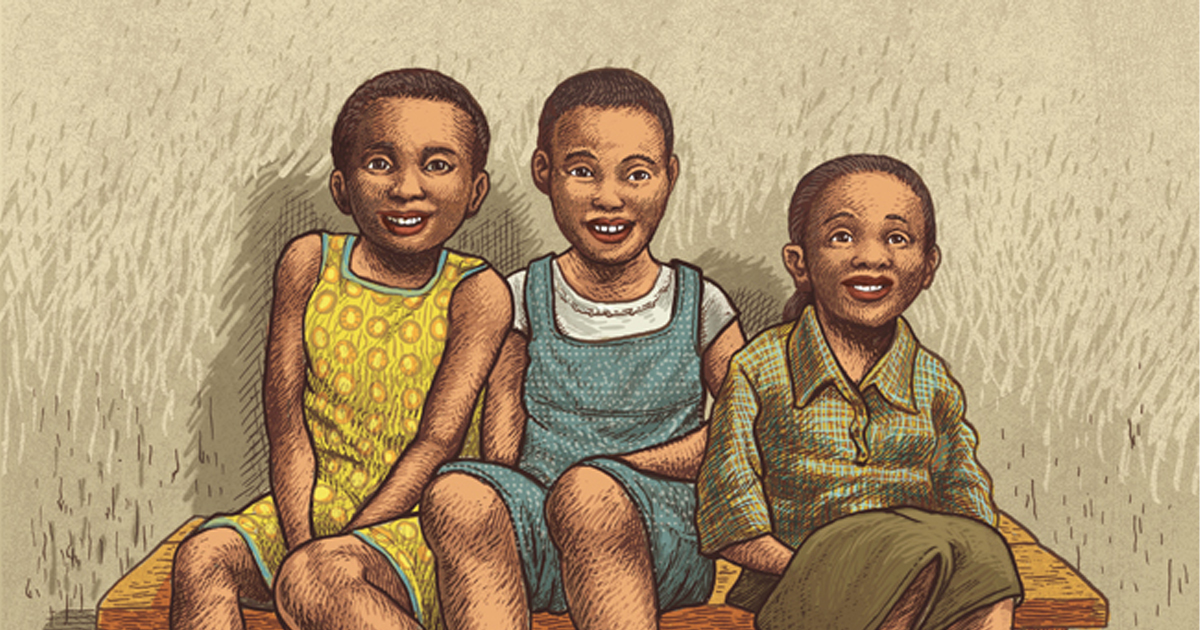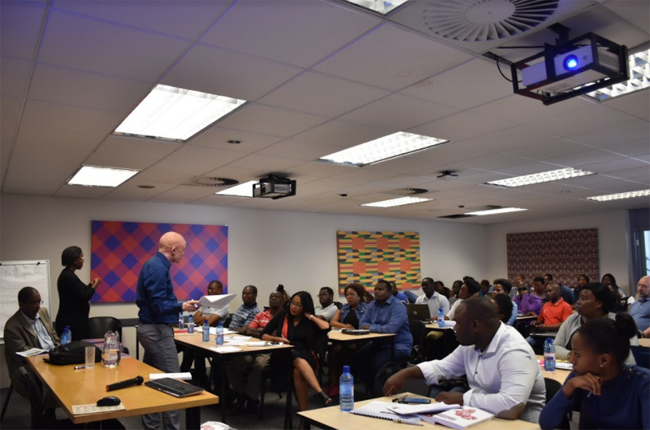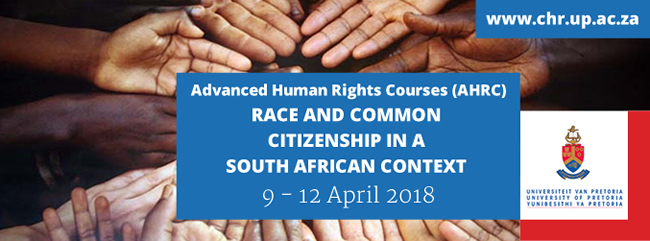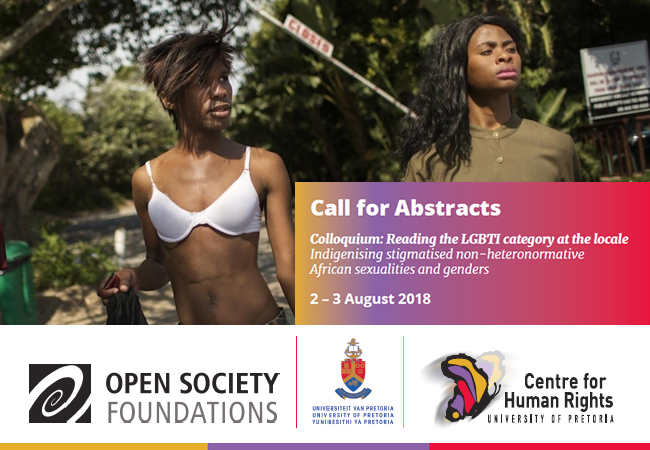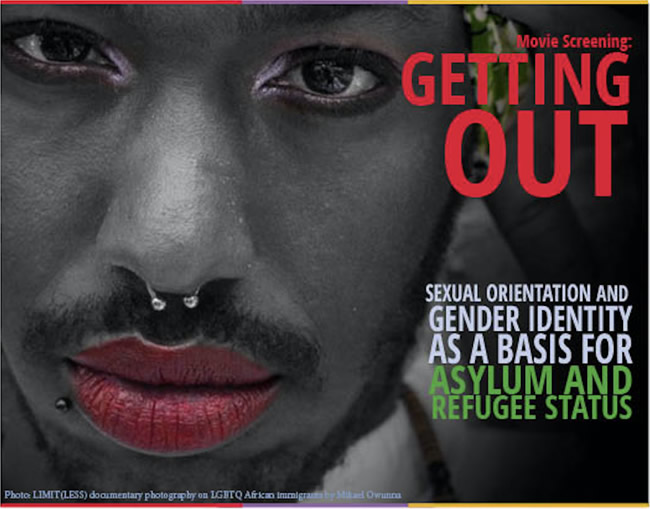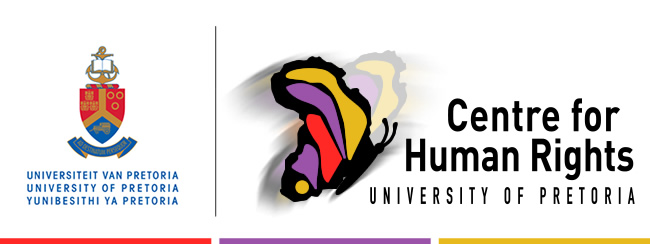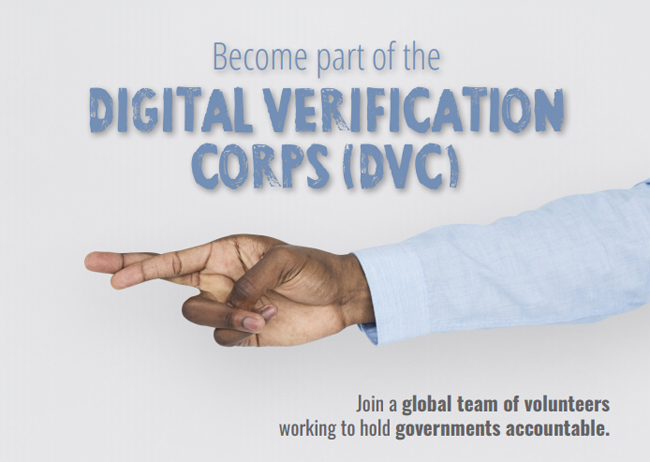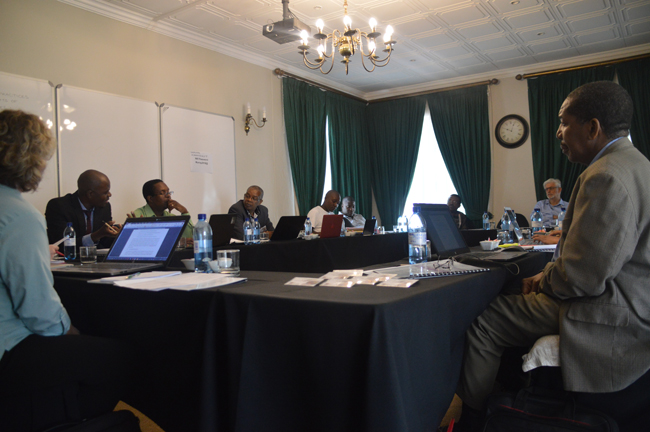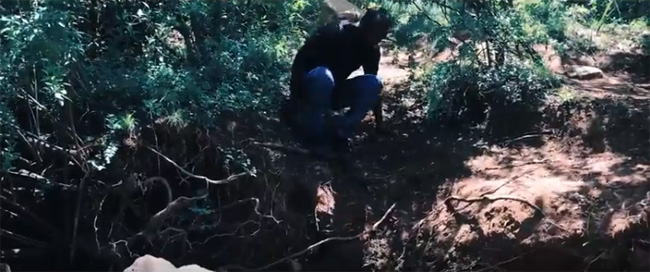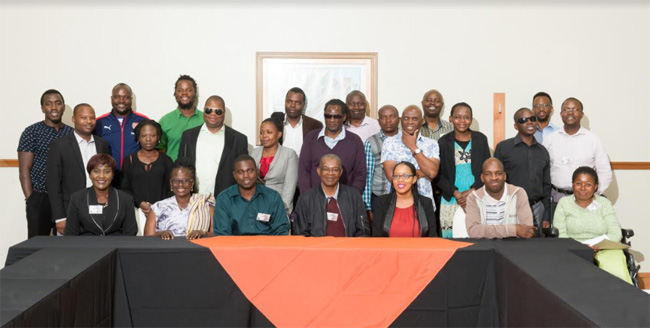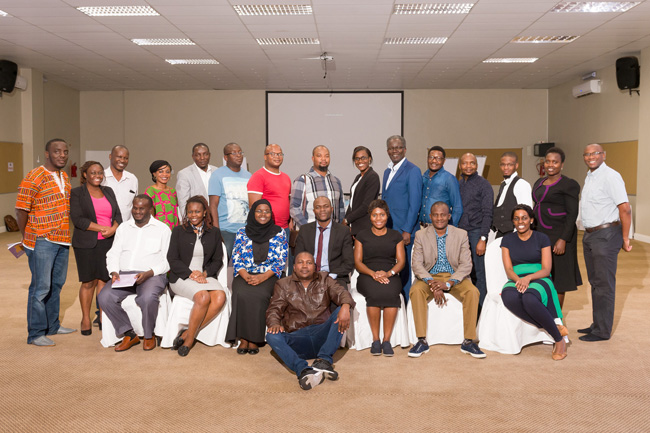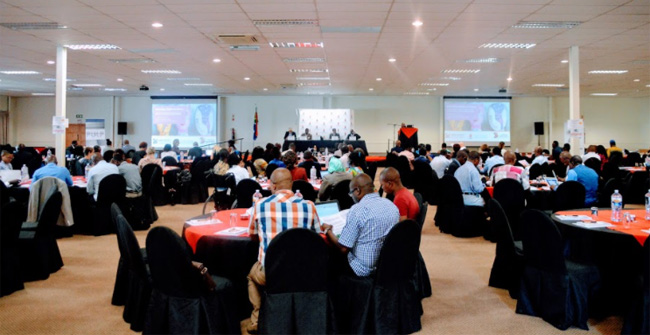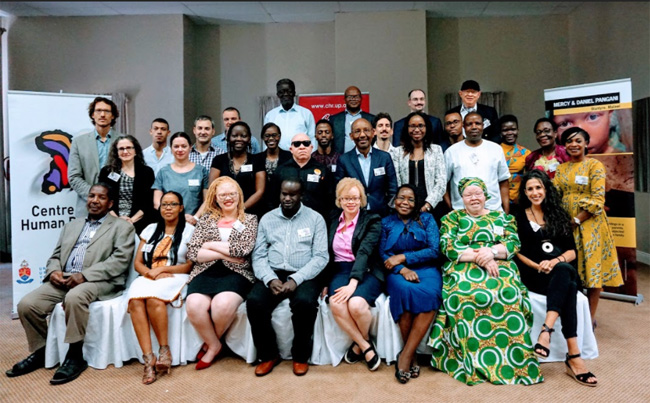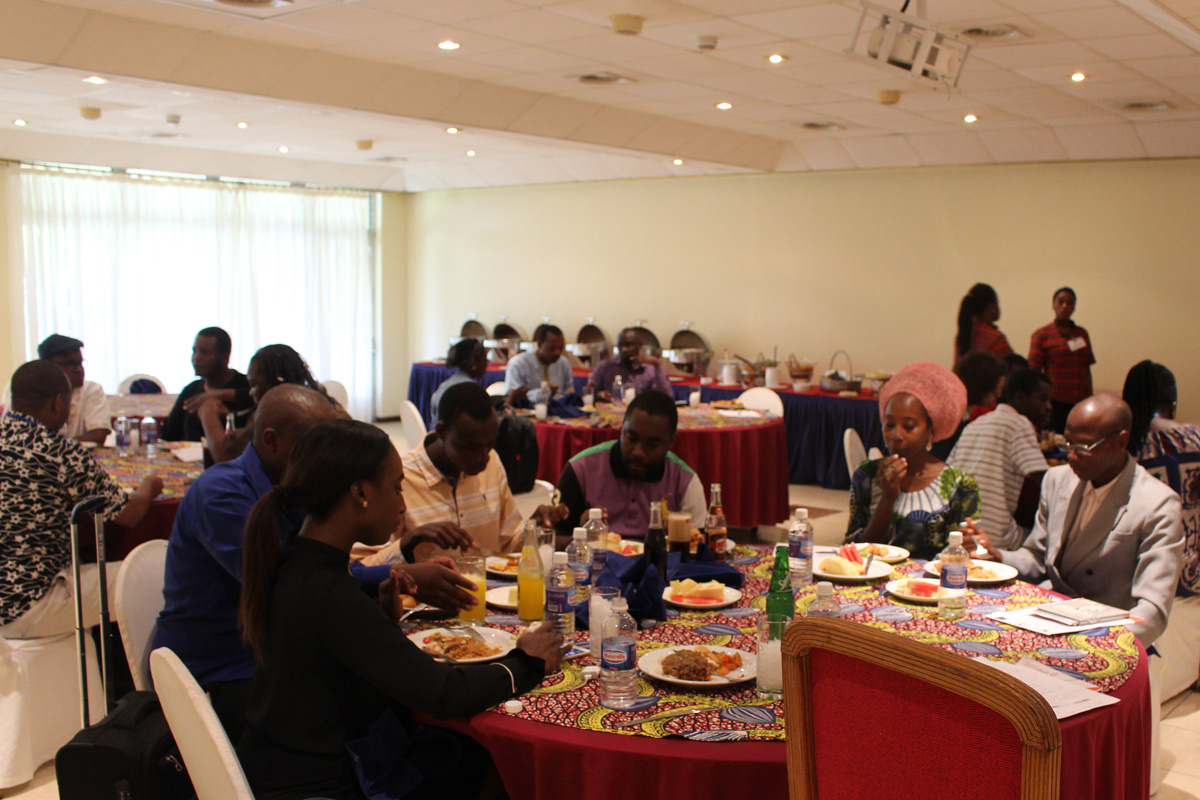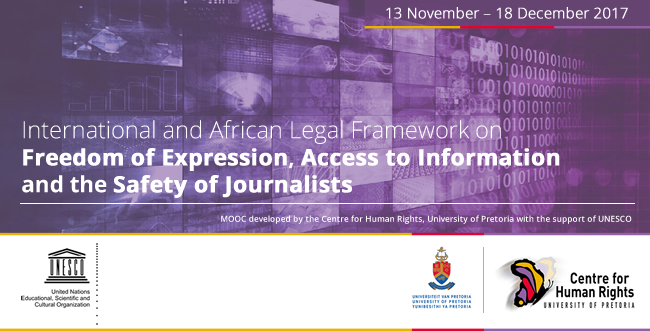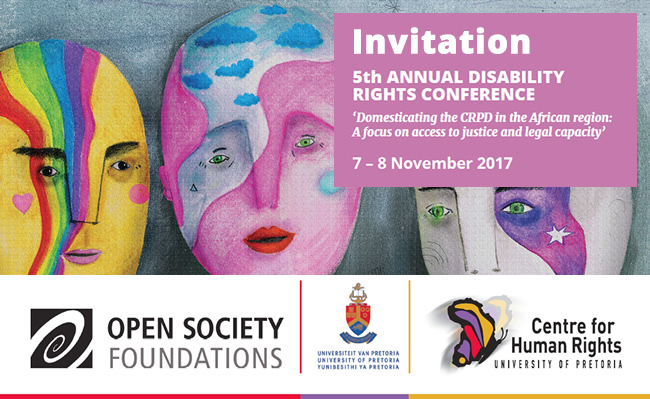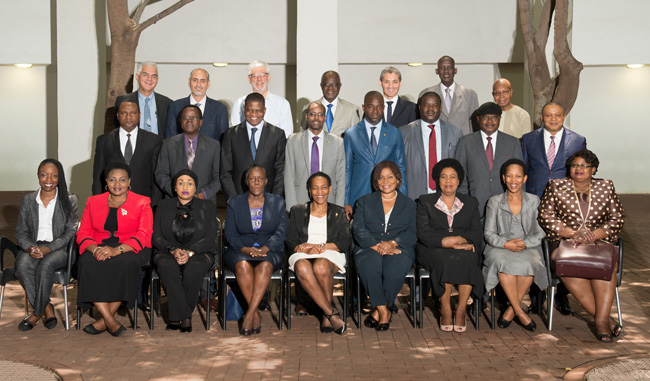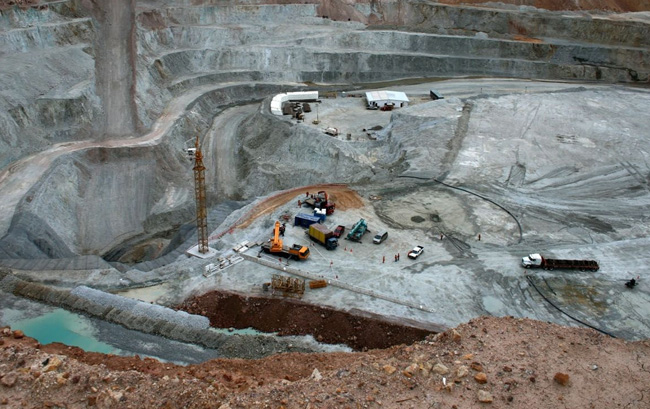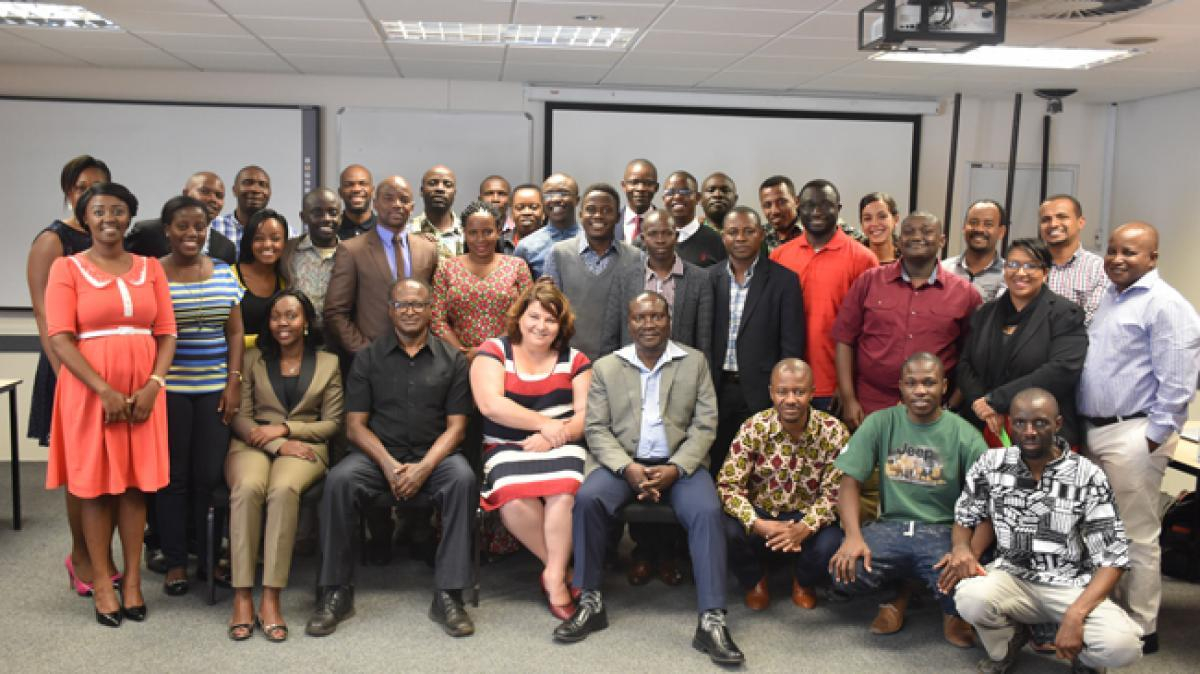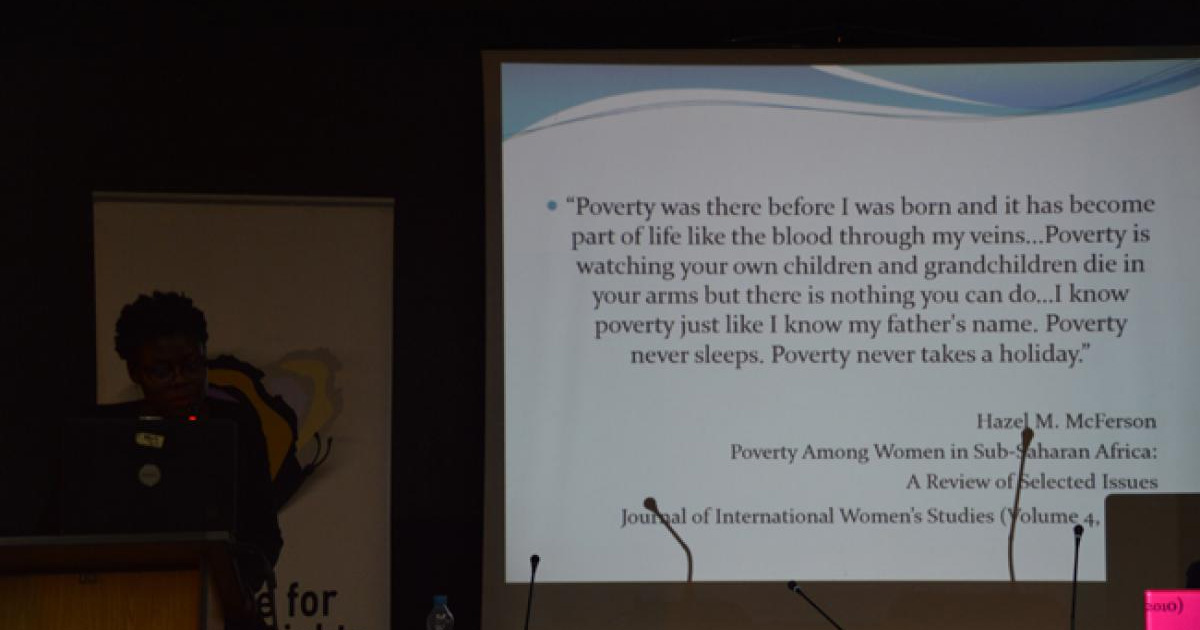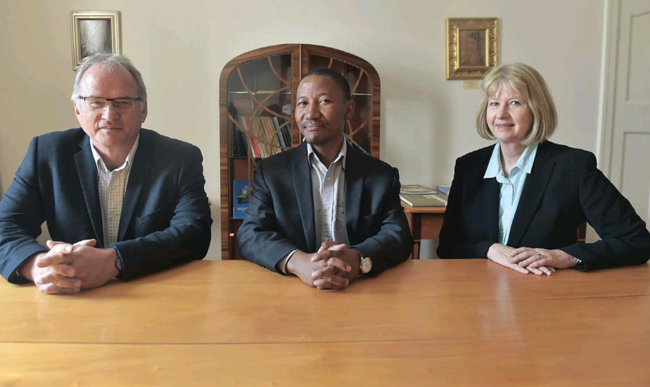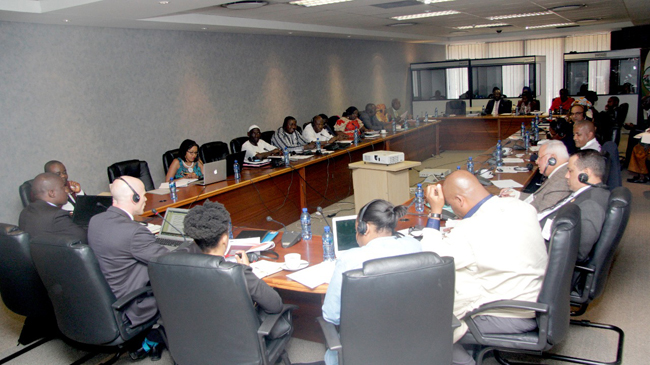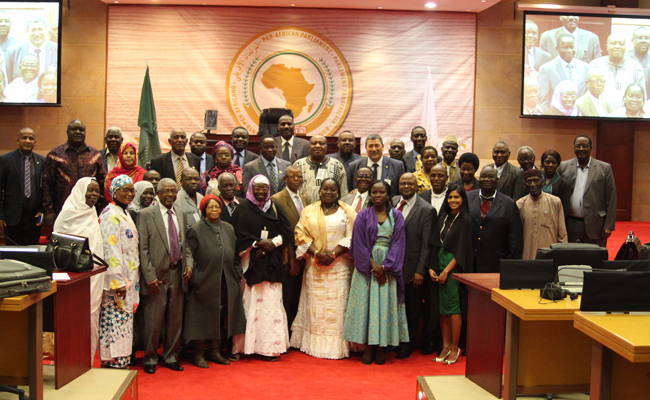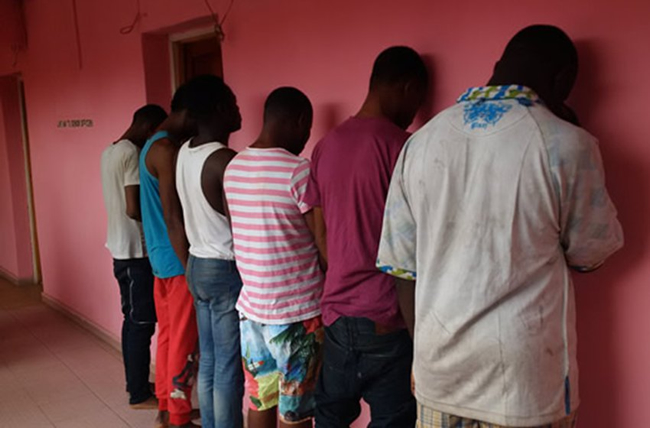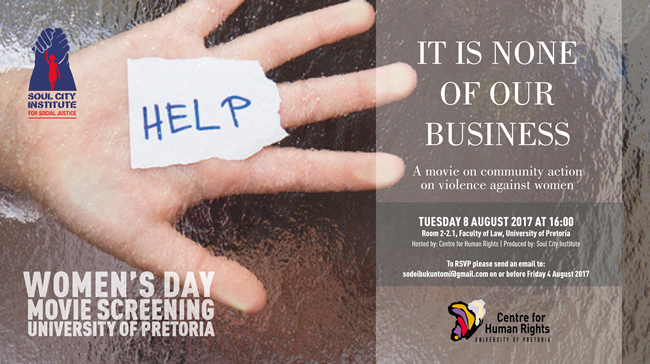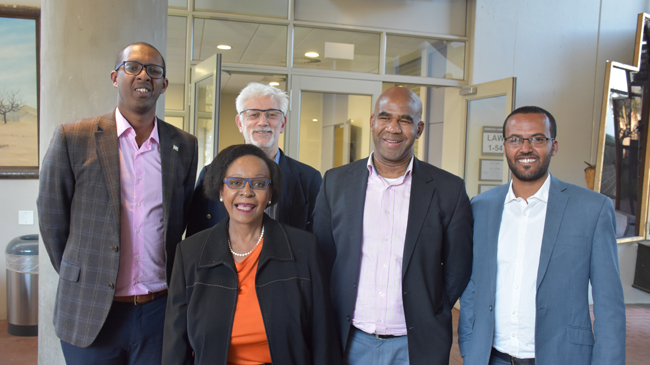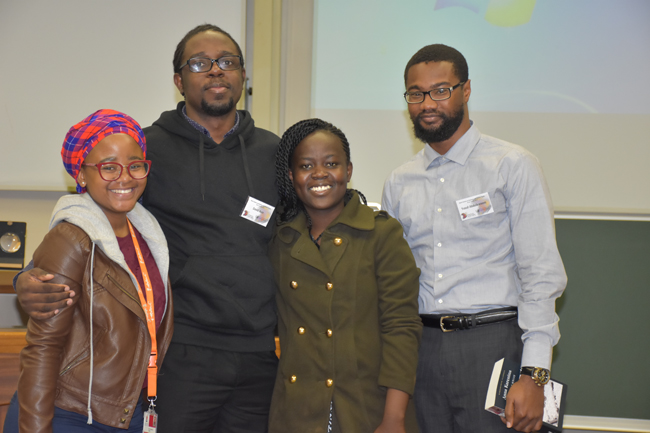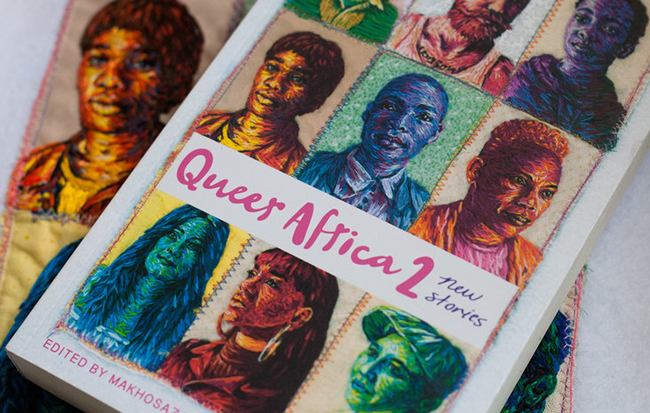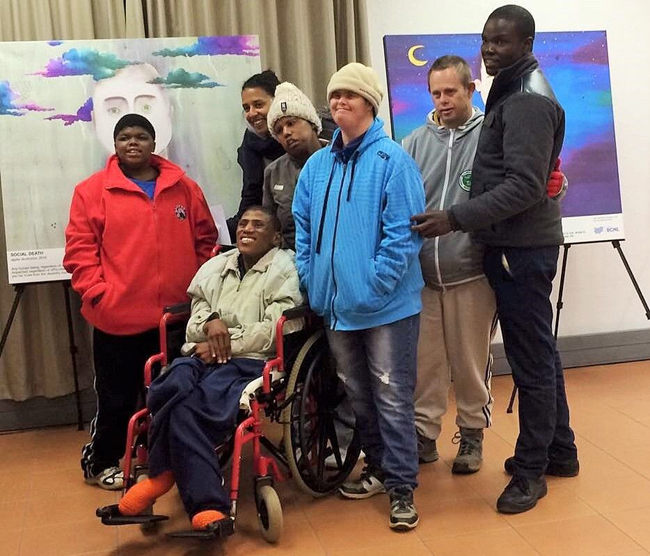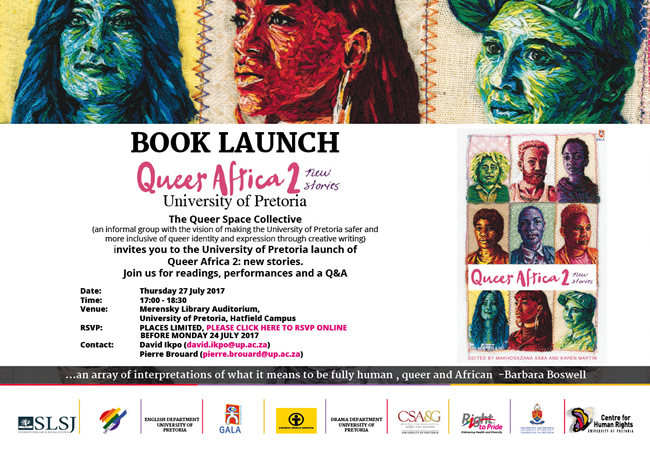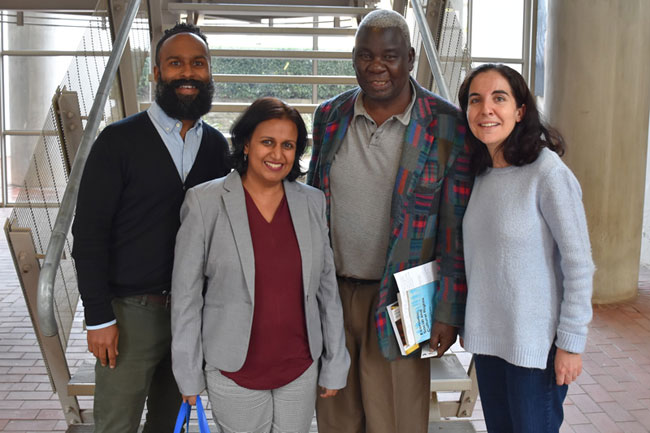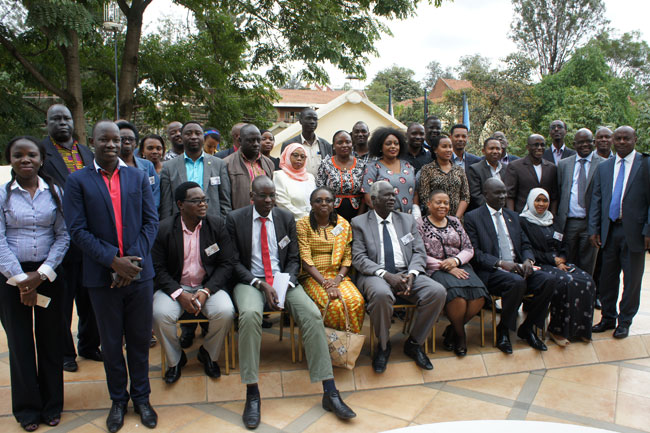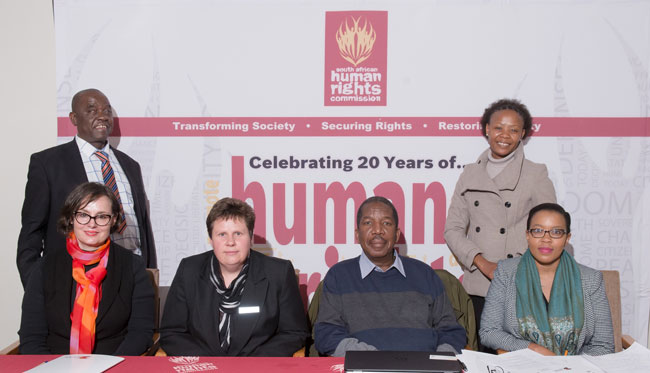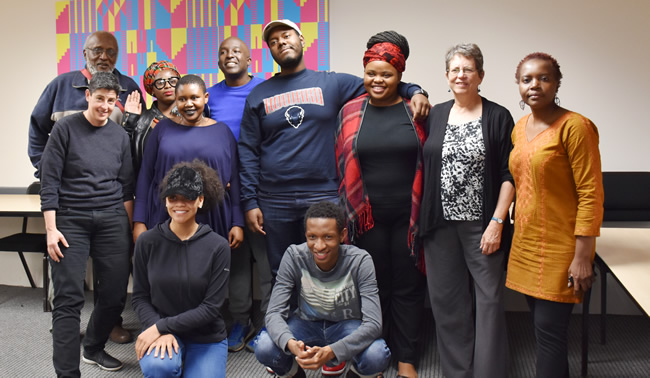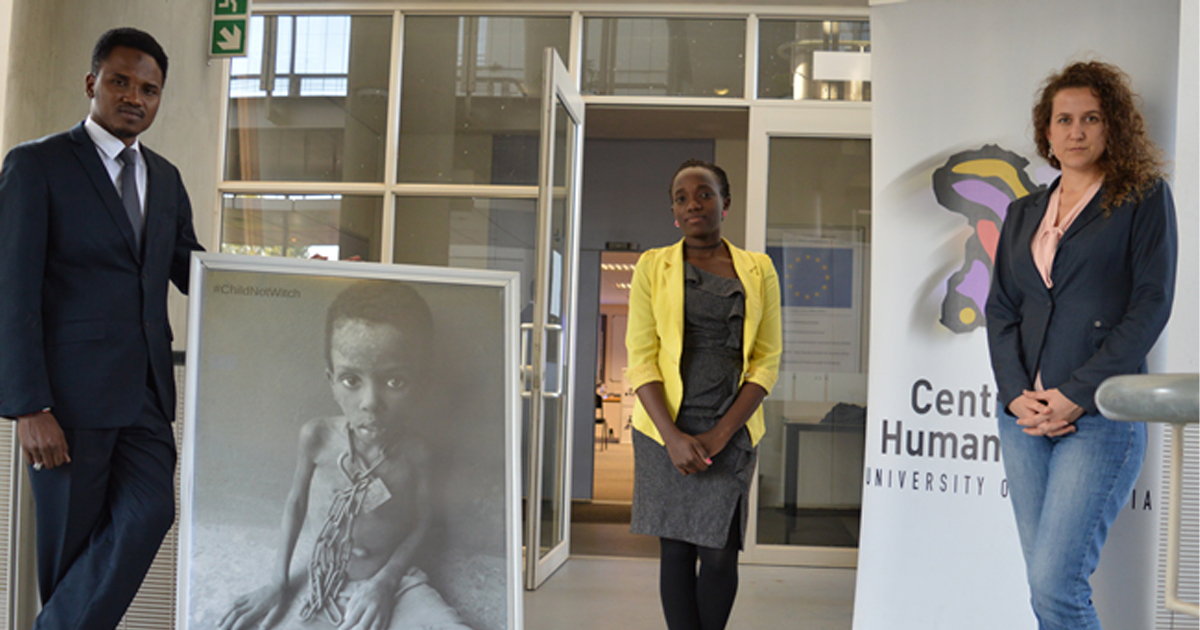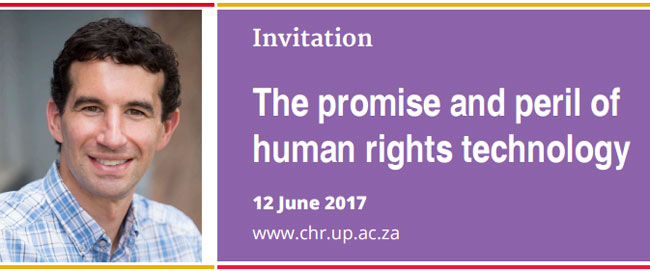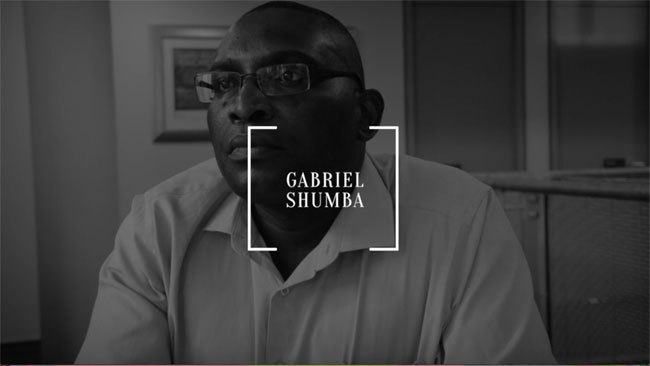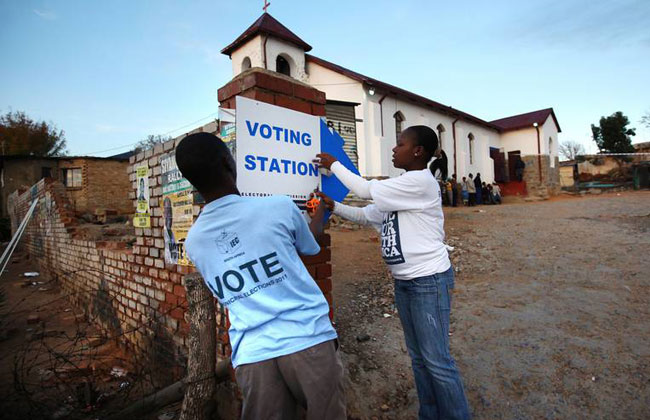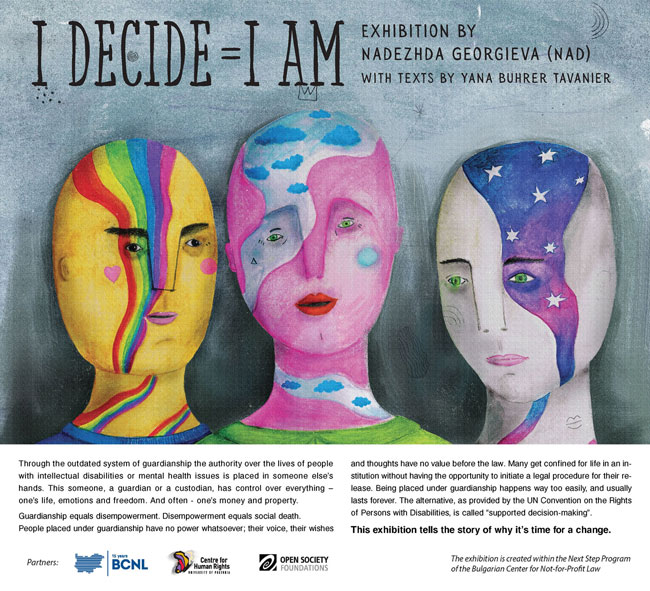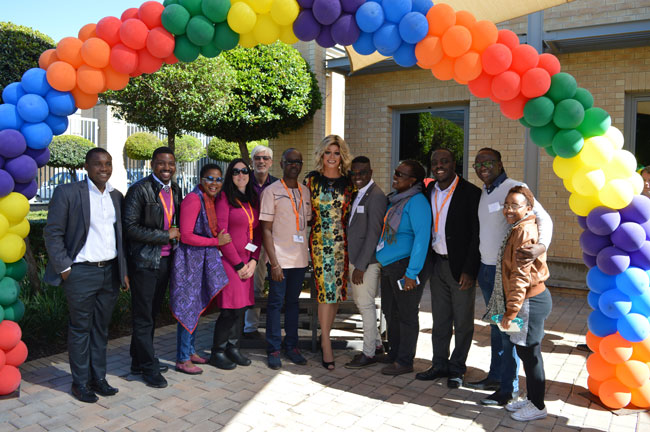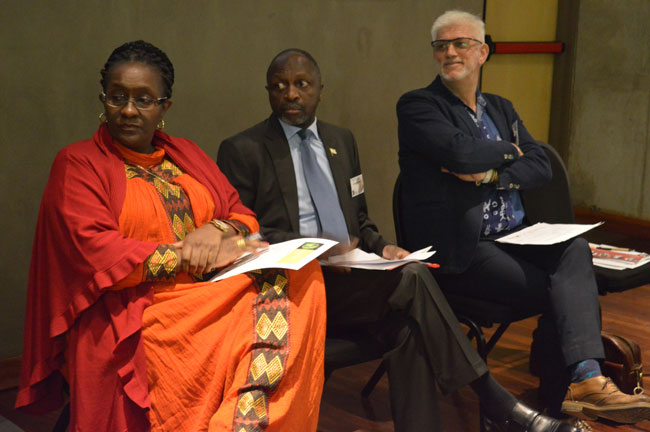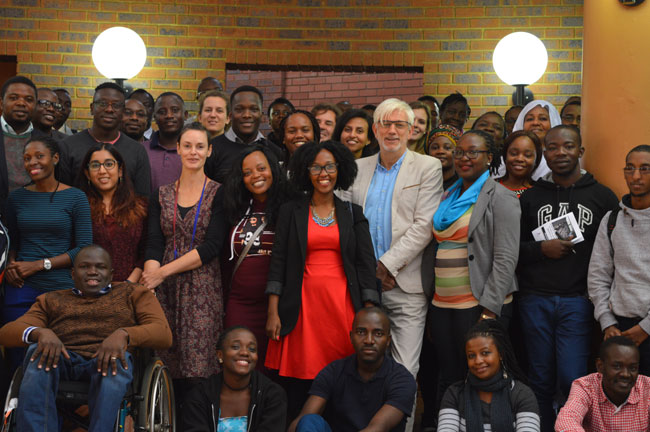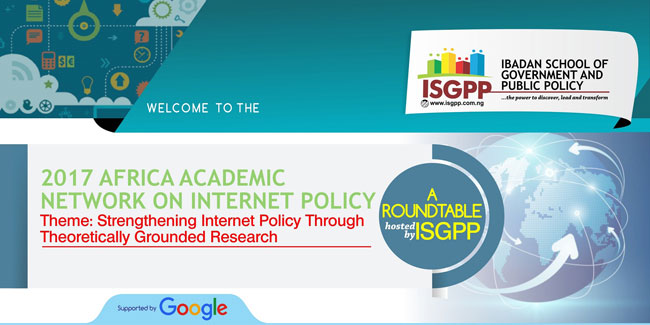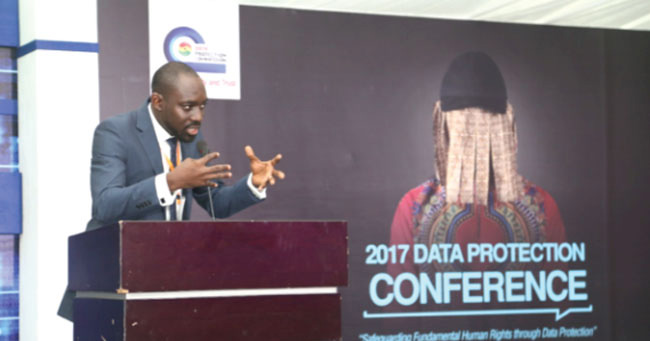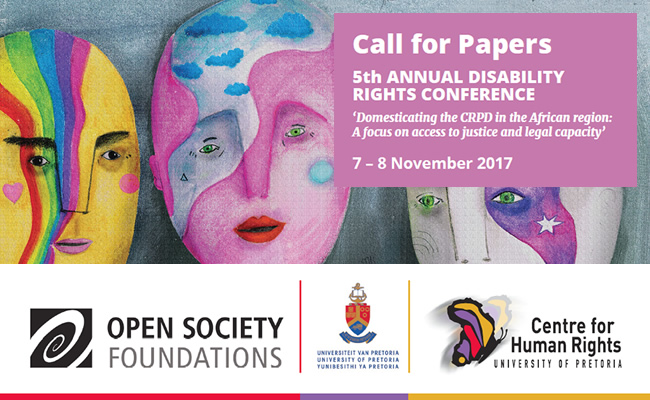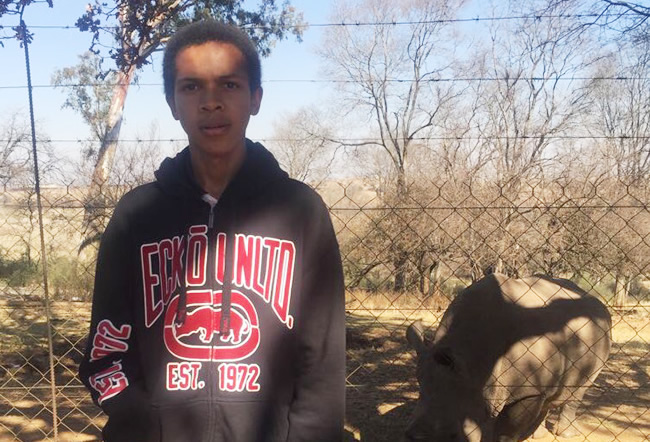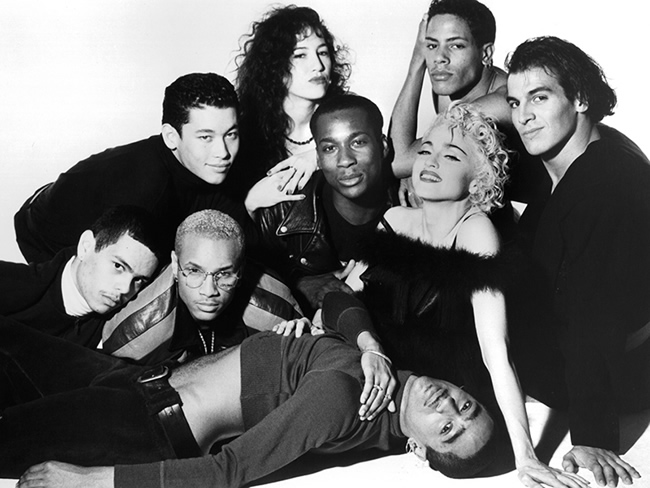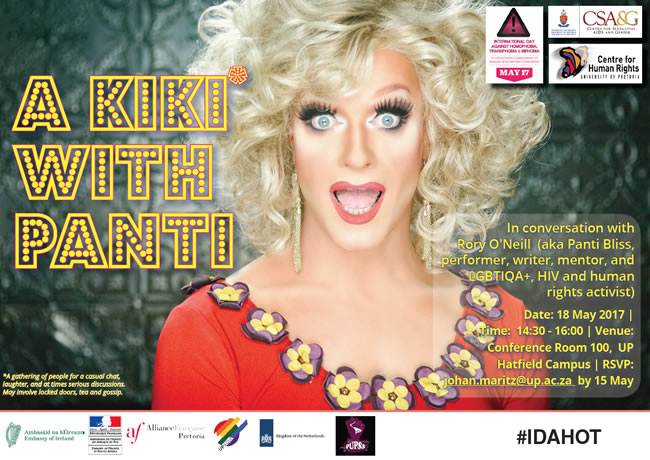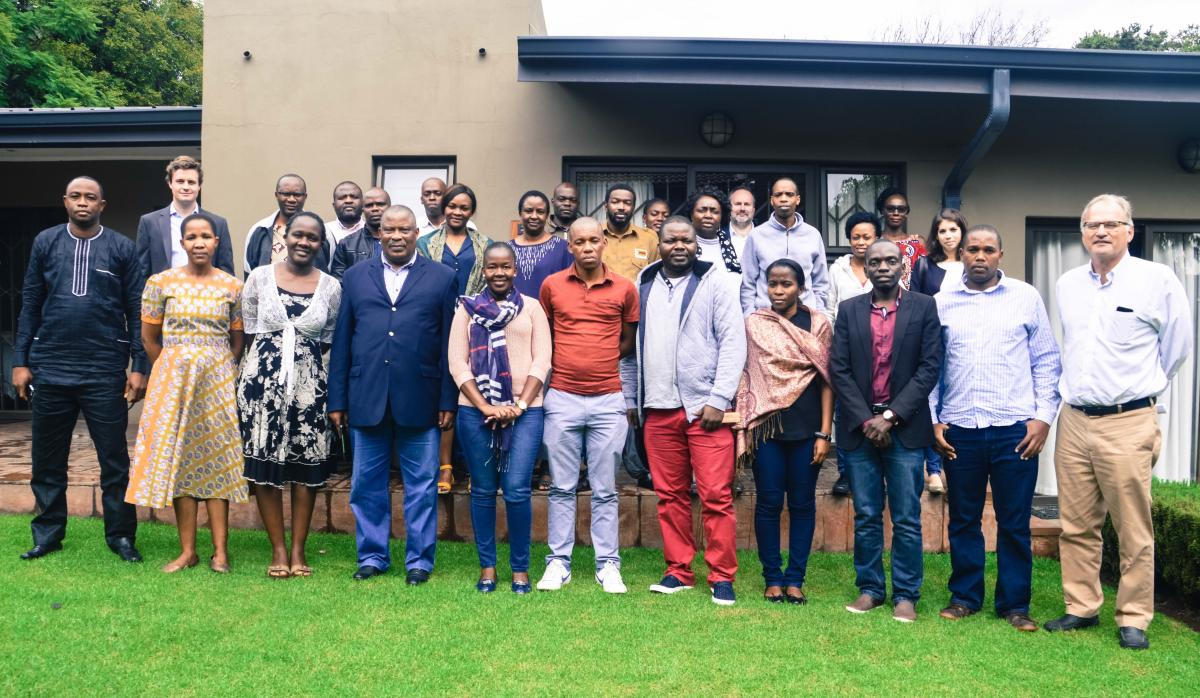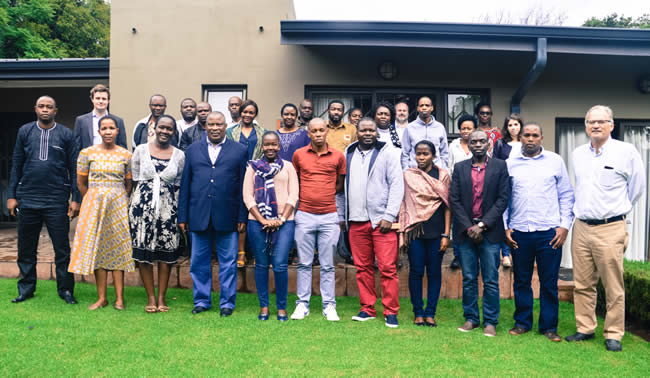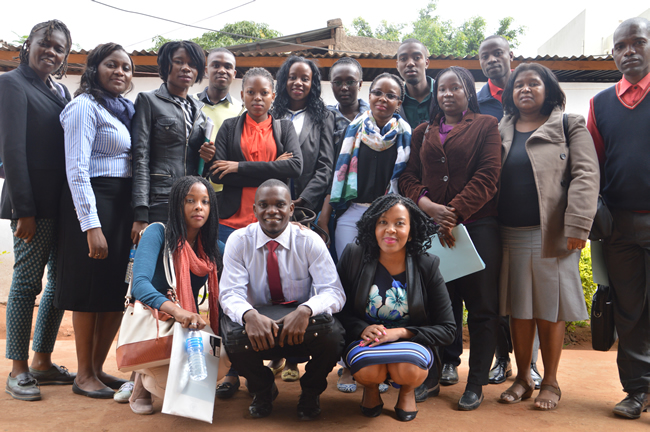- Details
The Women’s Rights Unit of the Centre for Human Rights was involved in various activities at the 63rd ordinary session of the African Commission on Human and Peoples' Rights which is currently been held in Banjul, The Gambia from 24 October to 7 November 2018. The session was preceded by the NGO Forum and 37th African Human Rights Book Fair, which took place from 20 to 22 October 2018.
- Details
The Democracy and Transparency Unit of the Centre hosted an East African Civil Society round-table forum in Kigali, Rwanda at the sidelines of a session of the Pan-African Parliament (PAP). The forum participants included academics, law students from Rwanda University and Kigali University, a representative from Rwanda Ministry of Justice and members of various civil society organisations in Rwanda, Uganda, Tanzania and Kenya.
- Details
On Friday, 19 October 2018, there was a one-day technical support meeting for stakeholders from Uganda. The meeting was organised jointly by the Ministry of Justice and Constitutional Affairs and the Centre for Human Rights. The meeting was held at the Protea hotel, Entebbe. Participants for this meeting were drawn from Government ministries, National Human Rights Commissions and civil society in Uganda. Participants were also members of a task team that had been set up for the purposes of drafting state reports on all the treaties that Uganda is party to. The meeting was earmarked specifically to offer technical support to Uganda's current draft report as part of the state's efforts to fulfil its reporting obligations under the African Charter and the Maputo Protocol to the African Commission.
- Details
From Tuesday, 16 October 2018 to Thursday, 18 October 2018, the Women's Rights Unit of the Centre for Human Rights organised and conducted a regional state reporting workshop on the African Charter on Human and Peoples Rights (African Charter) and the Protocol to the African Charter on Human and Peoples Rights on the Rights of Women in Africa (Maputo Protocol) for four African countries namely, Uganda, Kenya, Ethiopia and South Sudan. The workshop was organised and hosted in collaboration with the Ministry of Justice and Constitutional Affairs, in Uganda. It was held at the Protea hotel, Entebbe.
- Details
On 11 and 12 October 2018, the Centre for Human Rights, University of Pretoria in collaboration with the Special Rapporteur on Freedom of Expression and Access to Information in Africa (Special Rapporteur), Commissioner Lawrence Mute, organised a technical draft meeting of experts on the Revision of the Declaration of Principles on Freedom of Expression in Africa, in Mombasa, Kenya.
- Details
Due to the central role of access to information in promoting a healthy and well-functioning multi-party democracy, the African Commission’s Special Rapporteur on Freedom of Expression and Access to Information in Africa, Commissioner Lawrence Mute, undertook an advocacy visit to Nigeria from 24 to 27 September 2018 to raise awareness on article 9 of the African Charter on Human and Peoples’ Rights which establishes the right to freedom of expression and access to information.
- Details
On Saturday 29 September 2018 the annual SOWETO Pride was held at GOG Gardens in Soweto. Geoffrey Ogwaro and William Aseka from the SOGIE Unit of the Centre for Human Rights participated and took the opportunity to conduct informal information sessions with attendees and distribute brochures on the Equality Courts of South Africa. The SOGIE unit encourages persons discriminated against on the basis of their sexual orientation and/or gender identity to seek justice from the Equality Court as one of the uniquely different judicial institutions that tries to make access to justice easier for historically and socially marginalised groups. The Equality Courts are housed in most Magistrate Courts as well as some High Courts around South Africa. More information on Equality Courts can be accessed from the Department of Justice and Constitutional Development website http://www.justice.gov.za/EQCact/eqc_faq.html
- Details
Geoffrey Ogwaro
Centre for Human Rights, University of Pretoria
2 October 2018
Recently, as I was commuting on South Africa’s Gautrain, an urban passenger train transport system that connects several economic and residential hubs in the county’s cosmopolitan province of Gauteng, I came across a sign on the wall of the station that read: ‘The Gautrain celebrates diversity in South Africa and serves people of all races, nationalities, sexes, colours, religions, beliefs, genders, ages, sexual orientations, and disabilities. Valuing and respecting people’s differences on board the Gautrain is in the best interests of nation-building.’
- Details
Today - 1 October 2018, the Centre for Human Rights, joins others in commemorating the International Day of Older Persons. The theme of this year’s observance, “Celebrating Older Human Rights Champion,” points to the leading role of older persons in championing human rights. The International Day of Older Persons is representative of a global push to prioritise, promote and protect the rights of ageing populations across regions. Current global trend shows an increase in the overall number of people who are living beyond the age of sixty. The 2016 World Health Organization (WHO) Global Report on Ageing posits that between 2000 and 2050, the proportion of the world’s population that is 60 and above will double from 11 per cent to 22 per cent. By 2050, 2 billion of the world’s population will be 60 or older. Thus, it is critical that we focus on addressing the specific and unique needs of individuals as they grow older.
- Details
The Centre for Human Rights hosted the 2nd International Conference on the Right to Development, which took place from the 15 to 17 August 2018. The conference was jointly sponsored by the Centre for Human Rights, University of Pretoria, the American Society for International Law and the Thabo Mbeki African Leadership Institute, University of South Africa. The focus of this year’s theme: Insights into Policies and Practices on the Right to Development, provided participants the opportunity to explore the subject from a broad range of angles, including challenges and prospects for making the right to development a reality, the connection between the Sustainable Development Goals and the realisation of the right to development as well as regional and domestic experiences relating to implementing the right to development.
- Details
The Disability Rights Unit of the Centre for Human Rights in collaboration with the office of the UN Independent expert on the enjoyment of human rights by persons with albinism hosted a three-day capacity building workshop for frontline organisations working to advance the rights of persons with albinism in Botswana, Ghana, Kenya, Malawi, Nigeria, South Africa, Swaziland, Tanzania, Uganda, Zambia and Zimbabwe. The training which took place from 20-22 August 2018 at the University of Pretoria, was aimed at increasing the knowledge and understanding of human rights amoungst organisations working to advance the rights of persons with albinism in Africa.
- Details
The Centre for Human Rights, University of Pretoria, and the United Nations (UN) Independent Expert on the enjoyment of human rights by persons with albinism officially launched the Online Platform of the Regional Action Plan on Albinism in Africa (2017-2021) on Tuesday 21 August (available online at www.actiononalbinism.org). The launch featured a cocktail reception and a photo exhibition: ‘Shining Our Light to the World’ by Spanish artist and photojournalist Ana Yturralde. ‘Shining the light to the world’ is an exhibition consisting of realistic and striking depictions of the daily lives and the stories of persons with albinism in Africa.
- Details
An epistolary report on the Building Bridges Program, Amsterdam 2018
Dear Pink Africa,
We have to act. We have to act fast. Lives, our lives are on the line. I have never felt greater urgency than I feel now. I have just returned from Amsterdam and I brought you some words, some dreams.
I was selected to participate in the Building Bridges Program from 31 July to 5 August 2018. Annually, the program seeks to connect activists with inspiration, needs with support, questions with answers, doubt with confirmations and to bring together stories from across the sphere of the protection and promotion of human rights of sexual and gender minorities globally. This year’s theme was ‘LGBT and Religion and how to overcome by building bridges with allies’. I joined 11 other African, Middle Eastern and Northern African activists in the world’s most dynamic rainbow city, Amsterdam.
- Details
The Centre of Human Rights, University of Pretoria, in collaboration with the Pan-African Parliament (PAP), held a Civil Society Organisations’ Forum on the sidelines of committee sittings which focused on the theme ‘Effective Engagement with the Pan-African Parliament’. The one-day meeting, which was held on 8 August 2018, was attended by the First Vice-President of the PAP, Honorable Julius Masel; the PAP Acting Clerk Parliament, Mr Yusupha Jobe; the PAP Legal Counsel, Mr Clement Phebe Mavungu; the PAP Senior International Relations Officer, Mrs Lyn Chiwandamira; Professors and staff members from the Centre of Human Rights. The forum was attended by Gauteng-based civil society organisations (CSOs) including Oxfam South Africa, Southern African Parliamentary Support Trust (SAPST), the Open Society Initiative of Southern Africa (OSISA), Section 27, South African Institute of International Affairs (SAIIA), Centre of Applied Legal Studies (CALS), Freedom House and the French Embassy. The forum sought to establish a common approach to sustained and meaningful engagement by enabling participants to share and exchange best practices on how to achieve an effective and constructive civil society engagement platform with the PAP.
- Details
Alongside the activities of the 27th African Human Rights Moot Court, the Centre for Human Rights is engaging in advocacy to advance the rights of older persons, with a specific focus on older women, in Ghana. The Centre’s Women’s Rights Unit campaign, #AgeWithRights, in partnership with HelpAge International and the Moremi Initiative, hosted an advocacy meeting on 8 August to discuss Ghana’s ratification of the Protocol on the Rights of Older Persons.
- Details
The Centre for Human Rights - University of Pretoria (CHR), the Institute for Human Rights and Development in Africa (IHRDA), and the Legal and Human Rights Centre (LHRC) have sued the United Republic of Tanzania before the African Court on Human and Peoples’ Rights for its failure to ensure adequate protection of persons with albinism (PWAs).
The applicants filed the lawsuit on 25th July 2018, alleging that the State of Tanzania has failed to take sufficient measures to ward against the widespread persecution and discrimination perpetrated by the public against PWA.
- Details
Today Africa, at least parts of it, celebrates the legacy of Nelson Mandela. He was a ‘great’ anti-apartheid activist, lawyer and South Africa’s first post-apartheid president.
Here in South Africa, I have navigated through some multi-ethnic and multi-racial social spaces where the conversation of ‘Who is Nelson Mandela?’ came up. I have a growing sense of that there are mixed feelings about him, what he represents and the sustainability of his legacy. It is difficult to completely grasp the emotional context of the ‘phenomenon’ that is Nelson Mandela.
- Details
“Inequality can be done away with only by establishing a new society, where men and women will enjoy equal rights, resulting from an upheaval in the means of production and in all social relations. Thus, the status of women will improve only with the elimination of the system that exploits them….” Thomas Sankara
Since Sankara uttered these words, the African continent has made some strides towards eliminating the system that exploits and discriminates against women. One of these steps is the adoption of the Protocol to the African Charter on Human and Peoples’ Rights on the Rights of Women in Africa (Maputo Protocol) on 11 July 2003 in Maputo, Mozambique, it later came into force in 2005.
- Details
The Centre for Human Rights, Faculty of Law, University of Pretoria with the support of the Embassy of the Kingdom of the Netherlands, cordially invites you to apply for the Capacity Building Workshop on Strategic Advocacy & Litigation targeted at the promotion and protection of the human rights of lesbians, gay, bisexual, and transgender persons in Africa.
- Details
In a landmark acknowledgement of the importance of the normative elaboration of the obligation of Member States with respect to the right of access to information in electoral processes, the African Commission on Human and Peoples’ Rights (African Commission) adopted the Guidelines on Access to Information and Elections for Africa (the Guidelines) on 10 November 2017, during its 61st Ordinary Session, in Banjul, The Gambia. To celebrate this milestone, the Guidelines were officially launched during the recently concluded 62nd Ordinary Session of the African Commission, which took place from 25 April to 9 May 2018 in Nouakchott, Mauritania, in a session presided over by the Special Rapporteur on Freedom of Expression and Access to Information in Africa (Special Rapporteur), Commissioner Lawrence Mute.
- Details
One of the mandates of the Implementation Clinic at the Centre for Human Rights, University of Pretoria, is to engage with the national actors in African States towards the implementation of African human rights decisions. Having identified Zimbabwe as one of the focus countries for the year, the Centre in collaboration with some local partners in Zimbabwe are organising a national dialogue and capacity building workshop to enable the environment crucial to the implementation of human rights decisions. On 24 May 2018, the Centre hosted a planning meeting with representatives from the Zimbabwe Lawyers for Human Rights (ZLHR), Zimbabwe Human Rights NGO Forum (ZHRF) and the Zimbabwe Human Rights Commission (ZHRC).
- Details
The Centre for Human Rights, Faculty of Law, University of Pretoria in collaboration with Norwegian Ministry of Foreign Affairs presented its annual Advanced Human Rights Course on Judicial Enforcement of Socio-Economic Rights in Africa from 14 to 18 May 2018. The course brought together over 60 participants from across Africa and Europe, mainly representing members of judiciary, civil society, National Human Rights Institutions, policy makers, government officials and academia.
- Details
The Centre for Human Rights, Faculty of Law, University of Pretoria, welcomes the adoption by the African Union Heads of State of a treaty on the rights of person with disabilities, the Protocol to the African Charter on Human and Peoples’ Rights on the Rights of Persons with Disabilities (African Disability Rights Protocol), on 30 January 2018. Africa now has a continental binding legal document protecting the human rights of persons with disabilities. The adoption of the African Disability Rights Protocol marks an important step towards recognising the equal dignity of persons with disabilities on the continent.
- Details
Please join us for a panel discussion in celebration of the International Day Against Homophobia, Transphobia & Biphobia (IDAHOT). The theme for this year, Alliances for Solidarity, is a welcome reminder of the need for solidarity within the communities of sexual and gender minorities, as the rights of one specific group cannot be solidly secured if the rights of other groups are left unchallenged. ![]() Download this invitation
Download this invitation
- Details
The Queer Space Collective calls on you to participate in fostering the creation, telling, re-telling, archiving and accessibility of queer books and stories by donating used or brand new queer literature to the Queer Library for use by members of the University of Pretoria community.
- Details
The Centre for Human Rights, Faculty of Law, University of Pretoria, cordially invites you to a panel discussion on technology and democracy.![]() Download this invitation
Download this invitation
- Details
In commemorating the 15th anniversary of the Protocol to the African Charter on Human and Peoples Rights on the Rights of Women in Africa (Maputo Protocol), the Centre for Human Rights, University of Pretoria, is developing a photo exhibition and short video on the theme ‘Transwomen are women’. The exhibition and video will focus on the strength of Article 1(k) of the Maputo Protocol which provides that 'Women means persons of female gender, including girls'.
- Details
The Centre for Human Rights (the Centre) in partnership with Equality Now, Girls not Brides, Human Rights Watch and Plan International hosted a panel discussion on the recently adopted Joint General Comment to End Child Marriages and the Report on Child Marriage, commissioned by the African Commission on Human and People’s Rights (African Commission).
- Details
Bamako, Mali, 24 April 2018
Honourable Chairperson and members of the African Committee of Experts on the Rights and Welfare of the Child, I thank you for this opportunity to address you on the occasion of the 31st Ordinary Session of this honourable Committee. The Centre for Human Rights conveys its gratitude to the Committee for granting our application for observer status during the 30th Ordinary Session in Khartoum, Sudan in December 2017. We are pleased that granting us observer status will further facilitate our engagement with the Committee for the promotion and protection of children’s rights on the continent, especially through the full, effective and efficient implementation of the provisions of African Children’s Charter.
- Details
The Centre for Human Rights, University of Pretoria held a one-week intensive short course on Disability Rights in the African context from 12 to 16 March 2018. The course is part of a series of Advanced Human Rights Short Courses the Centre organises and offers to the members of the public. Over 60 participants from over 20 African countries enrolled and attended this year’s course. The participants included: persons with disabilities working in human rights, LLM/MPhil human rights students, Doctoral candidates working on disability rights, human rights activists, government officials, police officers, policy makers and distinguished Professors.
- Details
The Centre for Human Rights, University of Pretoria, will host a one-week intensive short course on Race and Common Citizenship in a South African context from 9 to 12 April 2018.
- Details
The Centre for Human Rights, University of Pretoria, is convening a colloquium on 2 - 3 August 2018 and is calling for abstracts on non-heteronormative African sexualities and genders.
The colloquium has the following main themes:
- reading the LGBTI category at the African locale; and
- indigenising stigmatised non-heteronormative African sexualities and genders.
It is anticipated that papers presented at the colloquium will be reworked by authors with a view to their consideration for publication as chapters in an edited volume.
- Details
The Centre for Human Rights, Faculty of Law, University of Pretoria cordially invites you to a Panel discussion - Sexual Orientation and Gender Identity as a basis for asylum and refugee status.
- Details
The Disability Rights Unit at the Centre for Human Rights, University of Pretoria wishes to invite applications for the following vacancy at the Centre for Human Rights (an academic department and a non-governmental organisation at the University):
Internship, Disability Rights Unit - (One post) (9 month contract appointment) - Centre for Human Rights
- Details
Join a global team of volunteers working to hold governments accountable. Learn skills that will enable you to authenticate social media posts, separating truth from lies.
- Details
On 29 and 30 January 2018, the Centre for Human Rights, Disability Rights Unit convened a two-day colloquium for emerging scholars in the disability rights field. In his welcoming address, Professor Frans Viljoen stated that the focus of the colloquium, was on developing theoretical and practical skills for academic writing in disability rights as they apply to the African region. Further explaining the rationale behind the colloquium Professor Charles Ngwena, said that the colloquium was aimed at providing emerging scholars in the disability rights field with a forum for developing a paper in progress into a publishable article for submission to African Disability Rights Yearbook (Yearbook).
- Details
The Advocacy Unit of the Centre for Human Rights has made a short film in response to the shocking slave trade of migrants recently uncovered through a CNN investigative report.
Through this video, we call on the international community to double its efforts in ensuring that the rights of migrants are protected.
- Details
On 9 November 2017, twenty three (23) alumni of the Disability Rights Scholarship Programme met at Saint George Hotel in Pretoria following the culmination of the 5th Annual African Disability Rights Conference. The purpose of the alumni meeting was to establish and form a platform for the alumni to network, share information about the scholarship programme, prospects for academic advancement and collaborate on issues pertaining to regional and country progress on disability rights.
- Details
The importance of inclusive education has been recognised globally as critically important for the advancement of the right to education. The retention and successful throughput of students with disabilities in higher education institutions is at a critical juncture. In Africa, the transformation of higher education systems so that they provide quality inclusive education for all students is in its infancy.Students with disabilities are for the greater part still not able to equally participate in higher education institutions as their abled bodied counterparts. The Disability Rights and Law Schools Project in Africa partner universities met in Pretoria to discuss the current state of inclusion in higher education with regards to students with disabilities.
- Details
Dr Samuel Kabue, a member of the United Nations Committee on the Rights of Persons with Disabilities (CRPD Committee), welcomed the Conference’s thematic focus, which is on legal capacity. He noted that the Committee has been grappling with the concept of ‘legal capacity’, and its practical application, especially in Africa. He lamented the fact that even for states that have ratified, the implementation of the CRPD is impeded by a lack of state reporting, a failure to accept individual complaints and failure to designate national monitoring mechanisms for the realization of the rights of persons with disabilities.
- Details
A group of representatives of organizations working on the protection of persons with albinism in Africa convened in Pretoria on Monday 6 November 2017 at the call of the United Nations Independent Expert on the Enjoyment of Human Rights by Persons with Albinism, Ms. Ikpwonosa Ero. Ms. Ero’s mandate as the Independent Expert was created in 2015 by the UN Human Rights Council, to address discrimination and stop the killings of people living with albinism.
- Details
On Saturday 4 November 2017, the Centre for Human Rights (Centre) in partnership with Iranti-org and SIPD -Uganda convened a panel discussion on intersex human rights in Banjul, The Gambia. The event came on the side-lines of the 61st ordinary session of the African Commission on Human and Peoples’ Rights (African Commission) which is taking place from 1-15 November. This was monumental considering that the African Commission is celebrating its 30 years anniversary and achievements ever-since it became operational 30 years ago.
- Details
The Centre for Human Rights, Faculty of Law, University of Pretoria and UNESCO developed a massive open online course (MOOC) on the International and African Legal Framework on Freedom of Expression, Access to Information and the Safety of Journalists. The MOOC, which runs from 13 November to 18 December 2017, is hosted on the Canvas Network platform. Enrollment is free of charge and after the successful completion of all the modules, participants will receive a certificate.
- Details
Only a few days to go! Files are packed, presentations rolled out and stakeholders from all across Africa are getting ready to attend the 5th Annual African Disability Rights Conference that will be held from 7 to 8 November 2017 at the Centre for Human Rights, University of Pretoria in South Africa. The array of participants include scholars, researchers, practitioners, human rights activists, advocates for law reform, persons with disabilities, civil society groups, lawyers, policymakers, and analysts.
- Details
The Centre for Human Rights in collaboration with the United Nations Educational Scientific and Cultural Organisation (UNESCO) held a three-day judicial training for judges from across Africa. The training which focused on freedom of expression, access to information and the safety of journalists took place from 23 to 25 October.
In attendance were senior judges from Cameroon, Ethiopia, the Gambia, Ghana, Guinea, Nigeria, Mauritania, Mozambique, South Africa, South Sudan, Tanzania, Uganda and Zambia. There was also a judge from the Economic Community of West African States (ECOWAS) Community of Court of Justice.
- Details
The Centre for Human Rights works for the improvement of the human rights of minorities - including sexual minorities - and other disadvantaged or marginalised persons or groups across the continent.
- Details
The Centre for Human Rights (CHR), Faculty of Law, University of Pretoria, is looking for a research consultant to prepare a baseline report on the impacts of the extractive industries on human rights and the environment in Africa. This work forms part of a project in which the CHR offers support to the Working Group on Extractive Industries, Environment, and Human Rights (WGEI) of the African Commission on Human and Peoples’ Rights (African Commission).
- Details
The Centre for Human Rights, Faculty of Law, University of Pretoria, in collaboration with International Work Group for Indigenous Affairs (IWGIA) hosted its Advanced Human Rights Short Course on Indigenous Peoples’ Rights in Africa from 25-29 September, 2017. The course brought together 32 participants; from different countries across Africa and Europe, with backgrounds that include: NGO managers, delegates of indigenous communities, academia, government policy makers, civil society, independent community consultants and legal practitioners.
- Details
The African Human Rights Moot Court Competition Conference took place at the University of Mauritius on 22 September 2017. Every year, the conference is one of the major highlights of the Moot Court competition. The conference utilises the platform of the Moot Court, which brings together students and faculty representatives from over 54 different universities around Africa, to raise, discuss and advance important issues of human rights in the continent. The 2017 conference theme was “The Maputo Protocol and poverty alleviation: Towards the realisation of women's rights in Africa”.
- Details
The University of Pretoria is currently in the unique position where three law professors from the faculty of law serve as international experts on key UN bodies in Geneva, responsible for the development and application of international law.
According to the dean of the faculty of law, Professor Andre Boraine, such a concentration of international experts in one university is exceptional by any standard.
“Some – not even all – countries count themselves lucky if they have one person in these key UN positions: here we have three experts not only from one country but also from one university,” he said.
- Details
The Centre for Human Rights made a presentation before members of the Pan African Parliament Permanent Committte on Justice and Human Rights on the continued plight of persons with albinism on the continent and the need for regional action on 9 August 2017. The presentation is part of the Centre for Human Rights’ on-going efforts to advance the rights of persons with albinism in Africa which began in 2016. The presentation, which took place at the Pan African Parliament headquarters in Midrand, South Africa during the Justice and Human Rights Committee session sought to bring to the attention of the Committee members the continued persistent and egregious violations of the rights of persons with albinism. More importantly the need for African states to adopt the recently finalised Regional Action Plan on Albinism in Africa, a 5-year plan to address attacks and related violations against persons with albinism in Sub Saharan Africa.
- Details
The Centre for Human Rights held a capacity building workshop for members of the Pan African Parliament (PAP) on 5 August 2017. The workshop, which was held at the seat of PAP in Midrand, South Africa, was themed ‘Digital Rights, Democracy and Governance in Africa: The Role of National and Regional Parliaments. The Centre for Human Rights facilitated this workshop in collaboration with its partners- Applied Law and Technology (ALT) Africa, Association for Progressive Communications (APC) and Google.
- Details
The Centre for Human Rights calls for the immediate release of the 42 persons who were unjustly arrested by law enforcement agents at the HIV awareness training for sexual and gender minorities which was held at the Vincent Hotel, Weigh Bridge in Owode Onirin, Lagos State, Nigeria on Saturday 29 July 2017.![]() Download this statement
Download this statement
- Details
The Women's Rights Unit, the SOGIE Unit and the Disability Rights Unit at the Centre for Human Rights is organising an advocacy event in commemoration of the National Women's day in South Africa. On the 9th of August 1956 more than 20 000 women of all races marched to the Union Buildings in Protest to amendments to the Pass Law and presented a petition against the idea of women carrying passes in urban areas.
- Details
The Centre for Human Rights, Faculty of Law, University of Pretoria, is currently hosting its third Advanced Human Rights Short Course on Children’s Rights in Africa. It started on Monday 31 July 2017 and runs to Friday 4 August 2017. The short course brings together 35 participants from 10 countries across Africa, with backgrounds that include national human rights institutions, academia, civil society, legal practitioners, prosecutors, teachers, medical professionals and government.
- Details
The Centre for Human Rights, University of Pretoria, hosted its second short course on business and human rights at the University of Pretoria from 10 - 14 July 2017. The event was made possible with support from the United Nations Office of the High Commissioner for Human Rights, Regional Office for Southern Africa. The short course brought together more than 55 participants, from 18 countries across Africa, with backgrounds that include national human rights institutions, academia, civil society, legal practitioners and government.
- Details
On Thursday 27 July 2017, Queer Africa 2: New stories made its grand entry into the University of Pretoria(UP) community at its well-attended book launch organised by the Queer Space Collective (QSC) at the Library Auditorium, University of Pretoria, Hatfield Campus. This was preceding earlier launches at the University of Witwatersrand, Cape Town and Oslo.
The force behind bringing Queer Africa 2: New stories home to UP, was the QSC’s vision to make the UP safer and more inclusive of queer identity and expression through creative writing and expressions. The QSC is an informal group comprising of individuals mostly from ten organisations representative of both themselves and their organisations. These organisations include: Student for Law and Social Justice; Up and Out; English Department and Drama Department of the University of Pretoria; Church World Services; Right to Care; Gay and Lesbian Memory in Action(GALA); Centre for Sexuality Aids and Gender; and the Centre for Human Rights. These organisations among other things engage actively at the core of their work with the issues of queerness and sexual and gender minority issues. Interestingly, individual membership of the QSC cuts across persons of various ages, races, sexual orientation, gender identities, nationalities and backgrounds working together through interdependence amongst members and member organisations to storm UP, to charm the UP space with the saturating consciousness of the need for equality, safety and inclusivity. The launch of Queer Africa 2: new stories is the Queer Space Collective’s maiden event.
- Details
The SA Federation for Mental Health (SAFMH) hosted the I Decide=I Am travelling art exhibition from the 17th to the 27th of July 2017 at its Randburg offices in Gauteng. The globally acclaimed exhibition by Bulgarian illustrator Nadezhda Georgieva and human rights activist Yana Buhrer tells the personal stories and reflections of sixteen people denied of their legal capacity because of their psychosocial or intellectual disability. The exhibition also includes three pieces by South African artist Daniel Mosako, based on his interpretation of the Life Esidimeni tragedy in which almost 100 persons with mental disabilities lost their lives.
- Details
The Queer Space Collective (an informal group with the vision of making the University of Pretoria safer and more inclusive of queer identity and expression through creative writing) invites you to the University of Pretoria launch of Queer Africa 2: New Stories. Join us for readings, performances and a Q&A session.
Queer Africa 2: New Stories is a ground breaking collection featuring twenty-six masterpieces from eight countries – Kenya, Nigeria, Rwanda, Sierra Leone, Somalia, South Africa, Uganda, and the United States of America. The plots of all twenty-six stories are separately and skilfully woven to reflect a vast range of human emotions and experiences that abound in the lives of Africans of all shades and colour at home and abroad who own the queer identity.
Date: Thursday 27 July 2017
Time: 17:00 - 18:30
Venue: Merensky Library Auditorium, University of Pretoria, Hatfield Campus
RSVP: PLACES LIMITED, PLEASE CLICK HERE TO RSVP ONLINE BEFORE MONDAY 24 JULY 2017
Contact: Mr David Ikpo ( david.ikpo@up.ac.za) / Pierre Brouard ( pierre.brouard@up.ac.za)
- Details
Although the right to form civil society organisations and peaceful assembly and association are recognised by international legal instruments; civil society groups and activists continue to face threats and fall victim to oppression every day. The Centre for Human Rights, University of Pretoria hosted a three day intensive short course on Civil Society Law in Africa from 3-5 July 2017. The course brought together several participants from across Africa, mainly representing civil society groups, policy makers, government officials, national human rights institutions and academia.
- Details
On 14 and 15 June 2017, the Centre for Human Rights, University of Pretoria and the School of Law of the University of Nairobi, in collaboration with the Special Rapporteur on Freedom of Expression and Access to Information in Africa (Special Rapporteur), Commissioner Pansy Tlakula, organised a consultation on the draft ‘Guidelines on Access to Information and Elections for Africa’ (Draft Guidelines).
The purpose of the consultation was to elicit comments on the Draft Guidelines from various stakeholders with a view to strengthening its content. The event was attended by a broad range of stakeholders including Election Management Bodies, political parties, National Human Rights Institutions, media, academics and civil society organisations.
- Details
The Centre for Human Rights in collaboration with the South African Human Rights Commission launched the travelling exhibition I decide=I am at the Commissions’ headquarters in Johannesburg yesterday. The globally acclaimed exhibition by Bulgarian illustrator Nadezhda Georgieva and award winning journalist and human rights activist Yana Buhrer tells the personal stories and reflections of sixteen people denied of their legal capacity because of their psychosocial or intellectual disability.
Speaking at the opening of the exhibition, South African Human Rights Commissioner responsible for Disability and Older Persons, Commissioner Bokankatla Malatji said the exhibition was part of a broader effort to raise awareness, promote understanding and public support of the right to legal capacity of persons with intellectual and psychosocial disabilities as guaranteed by article 12 of the United Nations Convention on the Rights of Persons with Disabilities (CRPD).
- Details
On Thursday 8 June 2017, the Women’s Rights Unit hosted a dynamic group of activists from the United States who are on an educational and cultural exchange tour. They visited the Centre for Human rights to engage on issues of historical injustice, state violence, truth and the rule of law. The meeting had in attendance members of the Centre’s management team as well as representatives from the Sexual Orientation and Gender Identity and Expression Unit, the Disability Rights Unit and the Women’s Rights Unit. The guests were also a diverse mix of educators, activists, legal practitioners and students, having come under the umbrella of an organisation called ‘Making the Road’. This organisation focuses on forging new paths and understandings through conversations that connect America and Southern Africa, history to the present, and different generations to one another.
- Details
On 20 May 2017, students from the Human Rights and Democratisation in Africa (HRDA) programme launched a campaign against children accused of being witches in Africa. The campaign ended on 7 June 2017. The campaign, also known as #ChildNotWitch, aims to create awareness around children in various African countries, accused of being witches and the abuse and even killings that are a result of these accusations.
- Details
The Centre for Human Rights, Faculty of Law, University of Pretoria cordially invites you to a lecture titled: "The promise and peril of human rights technology"
- Details
Gabriel Shumba is an alumnus of the Centre for Human Rights, who was tortured by agents of the Zimbabwean government for supporting the opposition in that country. In 2013, the African Commission on Human and Peoples’ Rights (African Commission) found the government of Zimbabwe in violation of the African Charter and directed the government to carry out an investigation of the individuals responsible for the torture and recommended that they pay adequate compensation to Gabriel Shumba.
- Details
The African Commission on Human and Peoples’ Rights (African Commission) has made a public call for comments on the draft ‘Guidelines on Access to Information and Elections in Africa’ (draft guidelines). Comments must be sent to the secretariat of the African Commission via email (au-banjul@africa-union.org | africancommission@yahoo.com | hezae@africa-union.org) no later than 30 June 2017.
Download draft guidelines in English
Download draft guidelines in French
- Details
The Centre for Human Rights and the South African Human Rights Commission invite you to the launch of the travelling exhibition “I Decide = I Am” by Bulgarian illustrator Nadezhda Georgiva, and award winning journalist Yana Buhrer Tavanier featuring emotive paintings on the Life Esidemini Tragedy by South African artist, Daniel Mosako. The exhibition tells the personal stories of people with intellectual and psychosocial disabilities trapped and invisible, denied of their right to decide.
- Details
Irish drag queen and LGBTI activist Rory O’Neill/ Panti Bliss launched the book Protecting the human rights of sexual minorities in contemporary Africa edited by Sylvie Namwase and Adrian Jjuuko. The launch took place on 17 May, the International Day Against Homophobia, Transphobia & Biphobia. The Embassy of the Netherlands, the Embassy of Ireland, HiVOS South Africa and the Centre for Human Rights partnered to organize a Rainbow Happy Hour and a round table discussion on that day.
- Details
The Centre for Human Rights celebrated Africa Day 2017 with the theme “The Africa we want: Rights, freedoms and governance in digital Africa”.This event was hosted in conjunction with Google. It was held at the historic Liliesleaf Farm, Rivonia, and attended by over eighty guests.The Embassy of the Netherlands, the Embassy of Ireland, HiVOS South Africa and the Centre for Human Rights partnered to organize a Rainbow Happy Hour and a round table discussion on that day.
- Details
The Centre for Human Rights, University of Pretoria hosted its annual short course on the judicial enforcement of socio-economic rights in Africa from 15-19 May 2017. The course brought together 60 participants from across Africa, mainly representing civil society, members of judiciary, national human rights institutions, policy makers, government officials and academia.
- Details
From 2 to 5 May, the Freedom of Expression and Access to Information (FOE & ATI ) Unit participated in the inaugural meeting of the Africa Academic Network of Internet Policy and Governance which took place in Ibadan, Nigeria. The roundtable which was organised by the Ibadan School of Government and Public Policy (ISGPP), with the support of Google, brought together academics of African descent both from within Africa and the diaspora, to identify and interrogate core issues on internet policy and governance.
- Details
The Freedom of Expression and Access to Information Unit participated in the Ghana Data Protection Conference which took place from 20 to 21 April 2017 in Accra, Ghana.
In line with the theme of the conference of ‘Safeguarding Fundamental Human Rights through Data Protection’, the Unit presented findings of its on-going research on the adoption of a human rights based approach to data protection in Africa.
- Details
The 5th Annual African Disability Rights Conference will be held from the 7th to the 8th of November 2017 at the Centre for Human Rights, University of Pretoria in South Africa. This year’s conference will focus on the following themes:
- a) the implications of the Convention on the Rights of Persons with Disabilities (CRPD) for the African region with particular reference to article 13, the right to access to justice and article 12, the right to equal recognition before the law;
- b) the development of mechanisms/strategies for the effective domestication and implementation of articles 12 and 13 of the CRPD and
- c) the interplay between article 13 and article 12 of the CRPD.
It is anticipated that papers presented at this conference will be reworked by authors and submitted for consideration for publication in the 2018 volume of the African Disability Rights Yearbook.
- Details
An “icon” is a word that should never be thrown around lightly. An icon is defined as a person or thing regarded as a representative or symbol of something, or someone is very successful or admired. For example, Lionel Messi could be considered an “icon” of football, Michael Jordan for basketball, Muhammed Ali for boxing. These people are the first things that come to mind when one thinks of the particular sport they are involved in. They are icons. Icons are around to inspire.
- Details
Roughly above a week ago, I saw the documentary film Strike a pose. It investigates the lives and personal journeys of the seven male dancers that rocked the stage with Madonna on her Blonde Ambition World Tour in 1990, 25 years after the tour. The film is as old as 2016. But I doubt that this is piece will ever stop being relevant to the queer and HIV discourse. Perhaps there is a parallel. Perhaps there is not. But I see that gay men still need a safe space to flourish. I still see that gay men need each other- sometimes even more than we care to admit.
- Details
kiki* with Panti (*A gathering of people for a casual chat, laughter, and at times serious discussions. May involve locked doors, tea and gossip.) In conversation with Rory O'Neill (aka Panti Bliss, performer, writer, mentor, and LGBTIQA+, HIV and human rights activist)
Event Details
Date: Thursday 18 May 2017
Time: 14:30 - 16:00
Venue: Conference Room 100, UP (Hatfield Campus)
RSVP: johan.maritz@up.ac.za by 15 May 2017
GENEVA (3 May 2017) – The Government of Eritrea must free journalist Dawit Isaak who has been awarded a prestigious press freedom prize some 15 years after he was detained, a United Nations human rights expert says.
The Special Rapporteur on the situation of human rights in Eritrea, Sheila B. Keetharuth, is also calling on the authorities in Asmara to release unconditionally all others detained unlawfully.
“The Eritrean authorities should stop the practice of arrests and detention carried out without legal basis instantly,” said Ms. Keetharuth, welcoming the award of the UNESCO/Guillermo Cano World Press Freedom Prize 2017 to Mr. Isaak.
Dawit Isaak, who is 52 and a playwright, journalist and writer, moved to Sweden in 1987, where he later became a citizen. He returned to Eritrea only after independence in 1993 and was one of the founders and reporters of Setit, the first independent newspaper in the country.
Mr. Isaak was arrested in September 2001 during a political crackdown on the so-called G-15, a group of politicians, and journalists critical of Government policies. Some were detained and tortured, others disappeared. The last known sighting of Mr. Isaak was in 2005. His whereabouts now are unknown.
“The case of Mr. Isaak is emblematic of all those who have been subjected to enforced disappearances by the Government of Eritrea and remain unaccounted for,” said Ms. Keetharuth.
The Special Rapporteur recalled the findings of the UN Commission of Inquiry on Human Rights in Eritrea, which concluded that there were reasonable grounds to believe that Eritrean officials had committed crimes against humanity, including the crime of enforced disappearance, in a persistent, widespread and systematic manner since 1991.
“The Government of Eritrea has an obligation to urgently provide information on the fate and whereabouts of all those deprived of physical liberty. This would be a first and long-overdue indication that the Government is committed to rebuilding trust with the Eritrean people,” Ms. Keetharuth said.
“By allowing independent monitors immediate and unhindered access to all places of detention, official and unofficial, the Government would send a strong signal that it acknowledges human rights violations of the past, while taking steps to improve the situation on the ground now.
“The arrests of Dawit Isaak and his fellow journalists remain the most visible sign of repression of freedom of expression. The Eritrean authorities continue to stifle all forms of expression that could be perceived as critical of the Government and its policies,” she said.
Ms. Keetharuth reaffirmed that freedom of expression was a basic human right, and a free press one of the tenets of a democratic society, providing a valuable check on potential excesses by government.
Ms. Sheila B. Keetharuth (Mauritius) was appointed as the first Special Rapporteur on the situation of human rights in Eritrea in October 2012. From 2014 to 2016, she also served as a member of the Commission of Inquiry on Human Rights in Eritrea. Since May 2014, Ms. Keetharuth is an expert member of the Working Group on Extractive Industries, Environment and Human Rights Violations of the African Commission on Human and Peoples’ Rights. Until 2012, Ms. Keetharuth was the Executive Director of the Institute for Human Rights and Development in Africa in Banjul, The Gambia. She also worked with Amnesty International in Kampala, Uganda, and as a lawyer and broadcaster in Mauritius. In 2017, Ms. Keetharuth was awarded with the Outstanding Alumni Achievement Award by the University of Leicester, in recognition of her human rights work.
Special Rapporteurs are part of what is known as the Special Procedures of the Human Rights Council. Special Procedures, the largest body of independent experts in the UN Human Rights system, is the general name of the Council’s independent fact-finding and monitoring mechanisms that address either specific country situations or thematic issues in all parts of the world. Special Procedures’ experts work on a voluntary basis; they are not UN staff and do not receive a salary for their work. They are independent from any government or organization and serve in their individual capacity.
- See more at: http://www.ohchr.org/en/NewsEvents/Pages/DisplayNews.aspx?NewsID=21571&LangID=E#sthash.rFwqqqsA.dpuf- Details
It is not often that I identify with the race struggle. One does not become genuinely emotionally aware of it by reading Nelson Mandela’s Long Walk to Freedom, seeing Idris Elba’s rendition of the Madiba or the Sophia town play- although I believe, I came very close. ‘Race’ has not always my reality. I live here in South Africa but I do not pretend to understand it fully, yet. What I do share with this reality is the consciousness of a tedious journey of struggling towards acceptance. If this is anything to go by, the parallel realities of the several immutable features that attract pain and exclusion share the same ‘darkness’. These features, race inclusive, are gender and gender expression, sex and sexuality, disability at several levels, ethnicity and ancestry, social and political class, religious affiliations or the lack of it. There will really be no end to this list. But Freedom Day every year as the celebration of the first time that exclusion was formally stopped as regards the peoples’ right to vote is not only a symbol of so much but a parallel victory for every reality that smacks of discrimination and exclusion.
- Details
Dear Africa,
It’s not so often that I get to run my mind’s musings by you. This was worse when you were a slim black leather volume on a green plastic table in a quiet part of Port Harcourt. Now you are the world. You are the minds of countless dreamers, lovers, activists, writers and travellers that are quizzed and dare to quiz. What is this quiz, this mystery? Not knowing, not sharing, not seeing, not hearing and as such, neither bearing nor understanding.
Often, I think, prejudice is nourished not by hate but by distance. Of course, distance permits us perspective and some objectivity. But it is often to be blamed for skewed and blurry vision. More so, it is often difficult to understand that which is not engaged with. However, we do not all have the audacity or opportunity to engage even if we wanted to.
So we set out to bring the picture closer. The mysteries of wearing queer ‘shoes’ in Africa as Africans. The taste and textures of the throbbing and pangs . Let’s talk. Let’s write. Just us. Let’s study and listen so that seeing would be much clearer. Let’s walk, engage in no particular order but let’s resolve to attend to every chapter there is before we are done. The chapters on love and living, the places, scars, secrets , strengths, failures and victories, fears, faiths and realities of our lesbian, gay, bisexual, transgender, intersex, queer, asexual and non-binary selves.
- Details
The right to life is often described as a supreme human right, but it is clearly under pressure worldwide.The Centre for Human Rights, University of Pretoria for the first time hosted its first annual short course on the right to life from 10-13April 2017. The course brought together several participants from across Africa, mainly representing civil society, national human rights institutions, police officers, prosecutors and academia.
- Details
The right to life is often described as a supreme human right, but it is clearly under pressure worldwide.The Centre for Human Rights, University of Pretoria for the first time hosted its first annual short course on the right to life from 10-13April 2017. The course brought together several participants from across Africa, mainly representing civil society, national human rights institutions, police officers, prosecutors and academia.
Experts in the field who lectured and participated on panel discussion consisted of: Professor Christof Heyns, Director Institute for International and Comparative Law in Africa University of Pretoria and Former United Nations Special Rapporteur on extrajudicial, summary or arbitrary executions; Commissioner Solomon Dersso, African Commission on Human and Peoples’ Rights; Commissioner Med Kaggwa, Member of the African Commission on Human and Peoples’ Rights’ Working Group on the Death Penalty and Extra-Judicial, Summary or Arbitrary Killings in Africa; Dr Thomas Probert, Institute for International and Comparative Law in Africa; Stuart Maslen, Institute for International and Comparative Law in Africa; Valentina Cadelo, Geneva Academy of International Humanitarian Law and Human Rights; Dr Japhet Biegon, Amnesty International; Sarah Swart, International Committee of the Red Cross; Sylvie van Lammeren, International Committee of the Red Cross; Dr Thompson Chengeta, Institute for International and Comparative Law in Africa and Adebayo Okeowo, Centre for Human Rights. The course is the first of its kind presented by an academic institution in Africa.
- Details
The Eduardo Mondlane University is one of several leading African Universities that partner with the Centre for Human Rights, University of Pretoria, in the execution of the Disability Rights Law Schools Project sponsored by the Open Society Foundation.
At Eduardo Mondlane University, disability rights teaching has been incorporated into the human rights module for both undergraduate and postgraduate students. There is also an active clinic group that takes up cases of discrimination against persons with disability as well as carry out vigorous sensitization visits in communities.
Following a support visit held in 2016 by the Disability Rights Unit of the Centre for Human Rights, a video was produced to highlight some of the incredible work being done by students and their lecturers/supervisors in advancing the rights of persons with disability in Mozambique. Watch below:
CHR and ICAR Release Comprehensive Study of Business and Human Rights Law and Policy in South Africa
- Details
The Centre for Human Rights (CHR) at the University of Pretoria and the International Corporate Accountability Roundtable (ICAR) are pleased to jointly release the “Shadow” National Baseline Assessment (NBA) of Current Implementation of Business and Human Rights Frameworks in South Africa.
This document represents one of the most exhaustive studies of South African laws, policies, regulations, and standards that pertain to business and human rights at the national level.
CHR and ICAR hope all stakeholders, including South African civil society groups, academia, government representatives, business groups, and investors, will engage with this tool, add to it, and apply it in their efforts to address business-related human rights harms.
- Details
The Centre for Human Rights (CHR), together with the Centre for Applied Legal Studies (CALS), hosted an Africa regional consultation on National Action Plans (NAPs) for business and human rights. The consultation forms part of a larger project driven by a coalition that consists of CALS, CHR, Singapore Management University (SMU) and other individual experts. The aim of the project is to gather a global South perspective on the content and development process of NAPs for business and human rights. The project was mandated by the UN Working Group on Business and Human Rights (Working Group).
The consultation, which took place at the University of Pretoria, was the second of two scheduled consultations that would feed into an implementation guide on NAPs for business and human rights that is currently being developed by the Working Group. The consultation attracted representatives from international organisations, government, national human rights institutions and the business sectors from 8 African countries.
The programme focused on issues around the development process and content of NAPs and also asked the participants to identify or highlight pertinent issues within their respective countries that should receive attention by a NAP on business and human rights. The participants also discussed the fundamental question, around what the case for NAPs on business and human rights is in Africa, and whether NAPs could potentially address business and human rights concerns on the continent.
The findings of the consultation will result in a report that, together with the findings from the first consultation held in Bali, Indonesia, will be submitted to the Working Group. The Working Group will then consider using the information to update its implementation guiding document. In an attempt to continue consulting relevant stakeholders about NAPs on business and human rights, the coalition also developed an online survey on the topic. All those interested are encouraged to participate in the survey, which may be found at https://www.surveymonkey.com/s/TVP3NX5.
- Details
The Centre for Human Rights, in support of the African Commission Working Group on Extractive Industries, Environment, and Human Rights recently hosted a consultation in Lubumbashi, Democratic Republic of Congo (DRC), which focused on the impact of extractive industries on human rights and the environment in Central Africa.
The consultation brought together a range of stakeholders working in the field of extractive industries in the Central Africa sub-region, with a strong representation from the DRC. The consultation took place over the course of three days (13 – 15 July 2015), and included presentations from the participants on issues that included environmental impacts of the extractive industries, community engagement and participation, development and human rights, and the different roles and responsibilities of state and non-state actors.
The Central Africa consultation was the third sub-regional consultation in a series of five sub-regional consultations, that hopes to cover all the sub-regions in Africa. The first consultation focused on Southern Africa and took place in Johannesburg, South Africa, and the second that focused on East Africa took place in Nairobi, Kenya. The findings and submissions from these consultations will be captured in a report that elaborates on the findings of all the different sub-regional consultations.
The hosting of this consultation was made possible by financial support received from the Australian Department of Foreign Affairs and trade. The fourth sub-regional consultation will focus on and take place in West Africa, though the exact date and time is not yet certain.
Please feel free to send any questions or queries regarding the sub-regional consultations to josua.loots@up.ac.za.
The Working Group also welcomes written submissions for purposes of developing its final findings report on the situation of extractive industries in Africa, and in particular the human rights and environmental impacts.
- Details
The Centre for Human Rights, together with the Institute for Human Rights and Business' office in Kenya, hosted a consultation for East Africa on behalf of the African Commission Working Group on Extractive Industries, Environment and Human Rights violations in Nairobi, Kenya, from 19 - 21 January 2015. The consultation brought together representatives from civil society, national human rights institutions, affected communities and role players from the extractive sector in East Africa for a three-day consultation focusing on challenges, best practices and the way forward in the sub-region. The Working Group was represented by Commissioners Pacifique Manirakiza and Lawrence Mute, and Expert Members Clement Voule, Sheila Keetharuth and Eric Kassongo.
The East Africa sub-regional consultation involved several panel presentations focusing on the different country contexts, and included views on Kenya, Uganda, Tanzania, South Sudan, and Rwanda. Thematic issues that were discussed over the course of the sub-regional consultation included the role of national human rights institutions in promoting a human rights-based approach to extractive industry governance, the accountability of state and non-state actors with regard to corporate human rights abuse, the experiences of human rights defenders working in the field, experiences of affected communities, benefit sharing practices, and the environmental impacts of extractive industries in East Africa.
The consultation brought together an excellent group of participants, and very insightful and interesting presentations were delivered. The consultation took place in an environment of constructive engagement, and the Working Group managed to engage with the participants throughout the process. The information gathered during the consultation will be contained in a sub-regional consultation report, currently in development and to be published as soon as possible.
It should be noted that invitations were extended to a number of interest groups, and the organisers were disappointed with the lack of participation from governments and the business community. The next sub-regional consultation is scheduled to take place in Lubumbashi, Democratic Republic of Congo, from 6 - 8 July 2015. This consultation will focus on Central Africa and again hopes to bring together representatives from government, national human rights institutions, civil society, affected communities and the business sector.
- Details
The symposium on mining and agriculture was hosted by the Australian Government in Kampala, Uganda, from 8 – 10 October 2014. The purpose of the symposium was to look at research and other projects on the African continent focusing on issues around mining and agriculture.
All projects included in the symposium are funded by the Australian Government. The Centre for Human Rights received a grant under the Australian Development Research Awards Scheme (ADRAS) in 2012. The collaborative project of the Centre for Human Rights (CHR) and the African Commission Working Group on Extractive Industries, Environment and Human Rights is funded by the ADRAS grant.
Over the course of three days, participants presented the research projects they are working on, explored potential areas for collaboration, and developed project plans and proposals based on existing experiences.
- Details
The African Union Commission together with the United Nations Office for the High Commissioner for Human Rights convened the first Africa Regional Forum on Business and Human Rights in Addis Ababa, Ethiopia, from. This event followed in the steps of the Annual Forum on Business and Human Rights. The 2014 Annual Forum will be the 3rd one of its kind, and takes place from 1 – 3 December 2014 in Geneva, Switzerland.
The Africa Forum focused on human rights issues that are relevant to the African region and included stakeholders from government, national human rights institutions, the corporate sector, civil society organisations, and academia. The Centre for Human Rights supported Ms Sheila Keetharuth, an expert member of the Working Group on Extractive Industries, Environment and Human Rights, in her capacity as a representative of the Working Group.
The underlying focus of the conference was the UN Guiding Principles (UNGPs) on Business and Human Rights, which constitutes the basis of the mandate of the UN Working Group on Business and Human Rights. At the conference, the African Union Commission (AUC) announced the development of an ‘African framework for implementing the UNGPs’, which should be the first of its kind. The AUC has not issued any further detail but is expected to work in close collaboration with the African Commission on Human and Peoples’ Rights on this project.
- Details
The African Commission Working Group on Extractive Industries, Environment and Human Rights, with assistance from the Legal Resources Centre (LRC), hosted a sub-regional consultation focusing on Southern Africa from 29 – 31 August 2014. The purpose of the consultation was to bring together stakeholders and representatives from all constituencies involved in the extractive industries sector. The event was attended by representatives from South Africa, Mozambique, Zimbabwe, and Botswana.
Representatives from different Southern African countries gave presentations on the human rights and environmental challenges they face within their respective lines of work. Some of the substantive issues that were discussed at the Consultation included land rights, mining law and policy, the environmental impact assessment procedures and frameworks, and the different roles and responsibilities of government, private actors, civil society, and affected community members.
The findings of the sub-regional consultations will be captured in a report, and made public by the Working Group.

